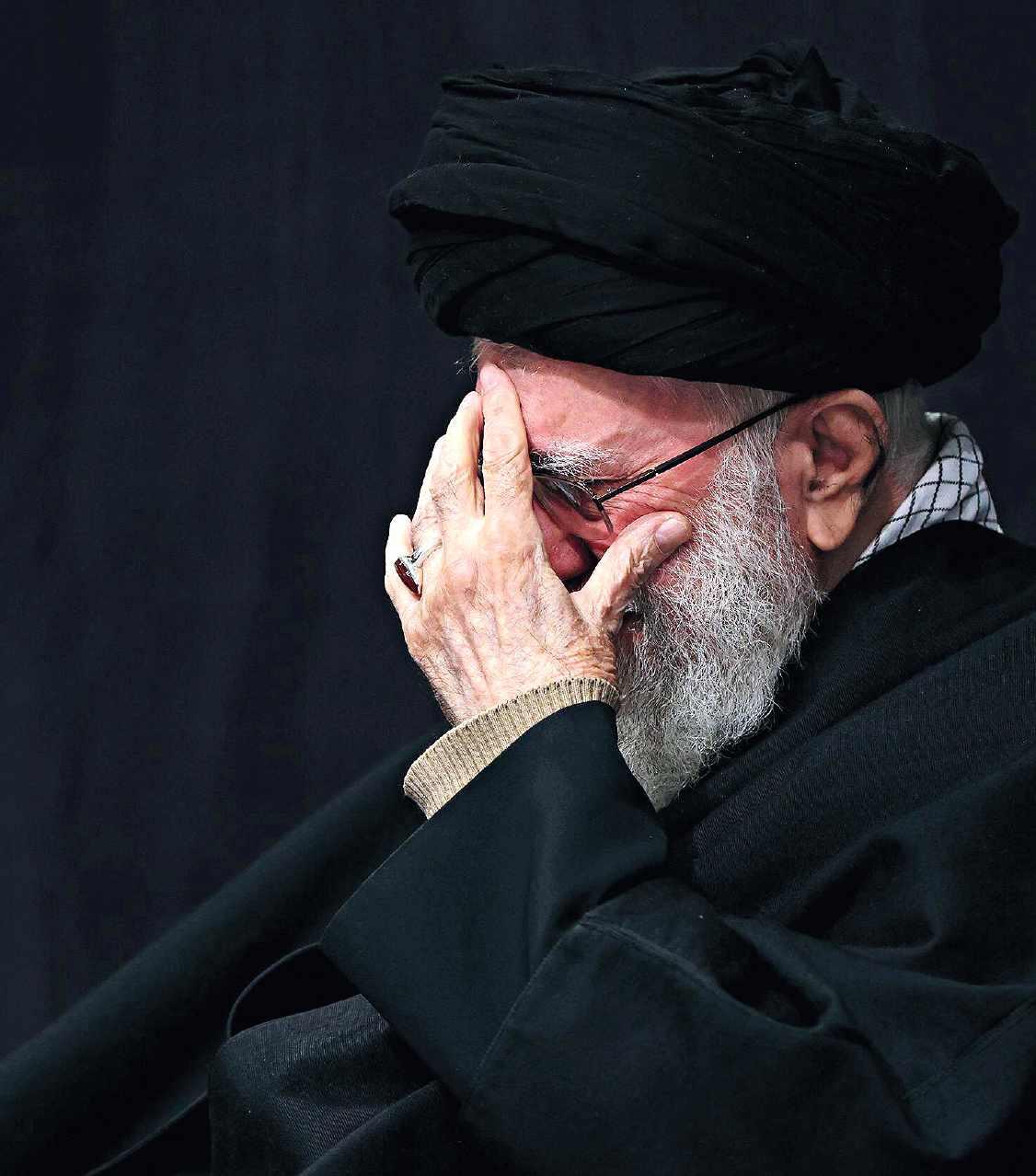
























































By Lee Harpin
The world was left second-guessing the intentions of Donald Trump last night as he repeatedly hinted that his country might join with Israel in launching devastating attacks against Iran’s nuclear facilities.
In a statement made from the White House lawn yesterday, the US president said Iran had “got a lot of trouble” before repeating he wanted Tehran’s “unconditional surrender”.
He added: “The next week is going to be very big, maybe less than a week.”
Trump appeared to favour attacking Iran, but he was under pressure from senior Republicans, who reminded him of his America
First election message, and his pledge to take his country out of foreign wars.
Trump is believed to be sympathetic to Israeli voices trying to persuade him it would be possible for the US to drop its bunker buster bombs on Iran’s main Fordow nuclear facility buried deep within a mountain, without sparking a wider war.
Britain was yesterday weighing up whether to provide military
support to the US in the event that Trump decided to bomb Iran after Keir Starmer chaired a Cobra meeting.
Since last Friday Israel has launched wave after wave of airstrikes against Iran, killing a succession of senior Iranian military figures, including Hossein Salami, commander of Iran’s Islamic Revolutionary Guard Corps (IRGC), and several nuclear scientists, including Fereydoon Abbasi, former head of Iran’s Atomic Energy Organisation.
Attacks on Iranian nuclear, military and other sites continued yesterday, while Israel intercepted about 90 percent of the hundreds of ballistic missiles launched indiscriminately at the country.
After six days of the onslaught Iran’s health ministry claimed at least 224 people had been killed since Friday, while Israel has reported 24 deaths in the same period. These were in Tel Aviv, Haifa, Tamra, Rishon LeZion and Bat Yam, where a 10-storey block of flats was hit.
By Tuesday, Israel’s military declared it had achieved “full air superiority” over Tehran, and had
A six-day-old baby was rescued alive from the rubble of a collapsed home in central Israel after a direct missile strike launched by Iran.
The infant was buried beneath debris when the missile hit a residential building during a wave of long-range rocket fire aimed at densely populated areas.
Medics from Magen David Adom (MDA) pulled the baby from the wreckage and transported the child to hospital, where the newborn is in stable condition.
Footage from the aftermath, captured by Gal Ganot, shows rescue teams carrying the baby through smoke and wreckage as sirens blared.
Emergency responders transfer six-day-old baby to ambulance after rescue from missile-hit home in central Israel. Credit: Gal Ganot
“This is what the fanatical regime targets: our children, our families,” said a senior Israeli official. “We will not stand by. We will continue to defend our people from the world’s most dangerous regime – whatever it takes.”
Dozens of civilians were injured in the missile bar-

A medic in central Israel carries the six-day-old baby
rage, with thousands forced to shelter overnight.
The strike has deepened national outrage and intensified calls for international recognition of Iran’s attacks as war crimes.
A spokesperson for the Prime Minister’s Office said: “The red lines were crossed long ago. When they aim for our babies, we do what is necessary to stop them.”
The rescue of the baby has become a symbol of both the war’s brutality and the resilience of Israeli emergency teams. Officials have issued a warning that the threat is far from over, with Iran continuing to target civilian infrastructure.
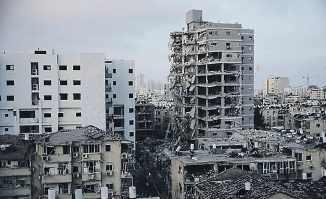
destroyed a third of Iran’s missile launchers.
Benjamin Netanyahu said the attacks, called Operation Rising Lion, targeted “the heart” of Iran’s nuclear programme.
“If not stopped, Iran could produce a nuclear weapon in a very short time,” the Israeli prime minister claimed. Iran insists its nuclear programme is peaceful.
In an interview with the ABC network Netanyahu also refused to rule out targeting Iranian Supreme Leader Ali Khamenei, saying: “It’s not going to escalate the conflict, it’s going to end the conflict.”

But despite the overwhelming success of Israel’s action, there were still concerns that it would take US intervention to finally put an end to Iran’s nuclear ambitions.
Iran’s Fordow nuclear facility remains at the centre of demands for the US to join the war. There are concerns that damage from Israeli airstrikes at other Iranian nuclear sites could be fixed again within months, and that only the destruction of Fordow would set back Tehran’s ambitions for years.
Fordow is buried below a mountain near the holy city of Qom, leaving only powerful US bunker
buster bombs, carried by B-2 bomber planes, as the weapon to destroy the facilities.
Israel’s national security adviser, Tzachi Hanegbi, said the war had been an entirely Israeli campaign, but it “will not end without damaging Fordow”, in an interview with Israel’s Channel 12 television.
As Starmer chaired a Cobra meeting with senior officials and ministers yesterday afternoon ministers were expected to discuss what the UK should do in the event that Trump asks for the country’s support in conducting military operations.
Iran’s ambassador to the UK Seyed Ali Mousavi has told MPs that Hamas, Hezbollah and the Houthis are “inspired” by the regime in Tehran and are “liberation movements” seeking to overthrow the “occcupier”, writes Lee Harpin.
Appearing in front of the Commons foreign affairs select committee, Mousavi read out a near 15-minute statement in which he called Israel “terrorist and criminal” for conducting its latest airstrikes.
At one stage he claimed that Iran’s nuclear programme was “only peaceful”, insisting: “There is no desire, not any intention, to produce a nuclear bomb.”
Emily Thornberry, in the chair, inter-
vened, bringing a halt to the ambassador’s words, which clearly riled the MPs.
Pressed by Thornberry on evidence that the regime in Tehran uses the three terror groups as proxies, Mousavi told Tuesday’s hearing: “You mentioned so-called proxies. No, they have their own nations, in the Yemeni people, or in the Palestinian people, the Hamas people, all of them are liberation organisations.
“They are trying to achieve self-determination to punish the occupiers.” He then claimed that “the very important Islamic revolution is the source of inspiration for all of the people in our region”.
Thornberry and others sitting on the
committee noted that Mousavi’s claims came less than a week after the International Atomic Energy Agency censured Iran for failing to comply with nonproliferation obligations intended to stop it developing a nuclear weapon.
Tehran is reported to have enriched uranium up to 60 percent, requiring only a short technical step to reach the weapons-grade level of 90 percent.
Labour MP Abtisam Mohamed asked the envoy why Iran was drafting legislation to leave the nuclear proliferation treaty. Mousavi tried to suggest parliament had a different role in Iran, where it acted independently from the regime.
Leaders of the G7 nations have described Iran as “the principal source of regional instability and terror”.
In a joint statement signed by Donald Trump and Keir Starmer and others, the leaders urged a “de-escalation of hostilities in the Middle East, including a ceasefire in Gaza” but stopped short of calling for a ceasefire between Israel and Iran.
The wording was agreed as they met at the summit in Canada, and before the US president departed one day early for “big stuff” in Washington.
The statement read: “We, the leaders of the G7, reiterate our commitment to peace and stability in the Middle East.
“In this context, we affirm that Israel has a right to defend itself. We reiterate
our support for the security of Israel. We also affirm the importance of the protection of civilians. Iran is the principal source of regional instability and terror.
“We have been consistently clear that Iran can never have a nuclear weapon.
“We urge that the resolution of the Iranian crisis leads to a broader de-escalation of hostilities in the Middle East, including a ceasefire in Gaza.
“We will remain vigilant to the implications for international energy markets and stand ready to coordinate, including with like-minded partners, to safeguard market stability.”


Trump later wrote again on his Truth Social platform lambasting another G7 attendee, President Emmanuel Macron of France. Trump said his “publicity seeking” counterpart had mistakenly suggested that he was working on a ceasefire.
“Wrong! He has no idea why I am now on my way to Washington, but it certainly has nothing to do with a ceasefire,” the US president wrote.

British military sources believe that America may want to use Diego Garcia — the joint UK-US base in the Indian Ocean — as a staging post for any US operation on Iran.
To do so, Trump would need to get permission from Starmer.
There was confusion over whether British nationals should remain in Israel after the Foreign O ce withdrew family members of embassy sta from the country.
The Foreign O ce stressed that sta had remained at both the embassy in Tel Aviv and the consulate in Jerusalem.
About 2,500 Britons still in Israel had registered with a Foreign O ce web portal o ering travel updates, as airspace in Israel remained closed. But o cials stressed that not all those registering wished to leave the country.
Some Britons made the arduous journey across Israel mainly to leave via the Jordan crossing.
The Foreign O ce urged Britons to follow the advice of Israel’s Home Front Command updates as the first port of call.
• Editorial comment, page 20
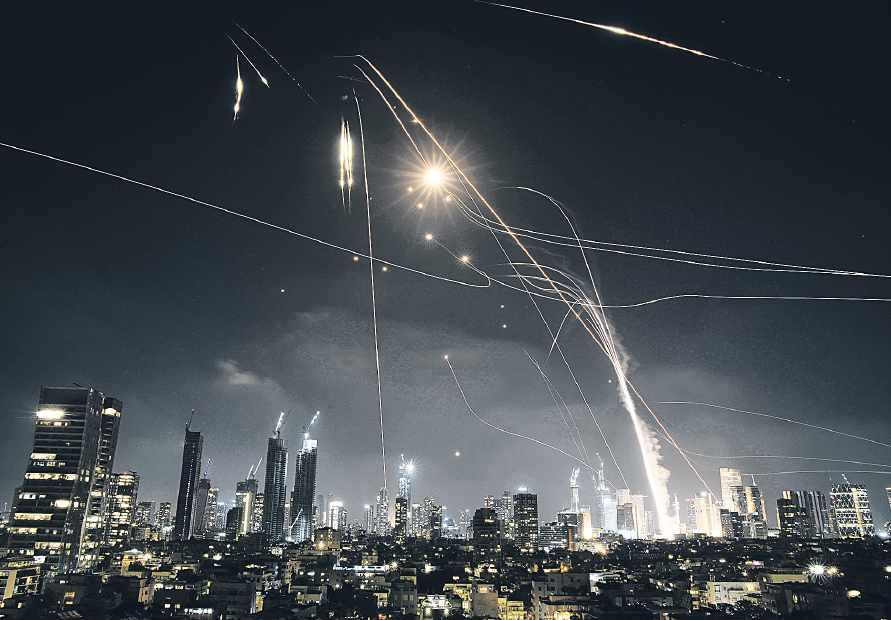
A Labour MP has spoken out about the “growing intensity” of threats made to him by proPalestine activists from thugs wearing face-coverings.
Luke Charters, member for York Outer, revealed that a can of baked beans was thrown towards him only last week by a group of activists who accused him of supporting genocide in Gaza.
His heavily pregnant wife Beth and two-and-a-half-year-old son were waiting to meet him near to where the tin was thrown at him.
Charters told the Times: “I’m trying to support Beth as much as I can but instead, I’m forced to explain what are really serious and unsettling incidents that lead to emergency responses to protect my safety.
“I’m a father first and an MP second… no father should have to go through that.”

The MP said the demonstration had meant that several local people who had booked to attend the surgery were frightened o from the meeting.
He told the newspaper: “There seems to be a growing intensity to these tactics. The most intimidating thing is when they’re wearing face coverings.”
Charters revealed he found scratches on his car after attending a recent Labour conference. He is now calling for a ban on protests outside MPs’ surgeries.
Last Saturday the MP revealed that about 20 protesters had tried to block the entrance to his constituency surgery while chanting “Luke Charters you can’t hide, we charge you with genocide”.







by Michelle Rosenberg michelle@jewishnews.co.uk
Chief Rabbi Sir Ephraim Mirvis has told Jewish News he has “lost count” of the number of times he has had to run for cover, after being stranded in Israel amid the conflict with Iran.
Mirvis had been due to deliver a keynote address at the Conference of European Rabbis in Munich this week.
Instead, he remains stuck in Herzliya following the closure of Israeli airspace, sheltering from missile attacks and unsure when he’ll be able to return to the UK.
“We’ve had four days and nights of sirens,” he said. “They’ve gone off three times a night on average. I’ve lost count.
“It’s not easy – but being here with family brings home what ordinary Israelis are going through. As an average man,
woman or child, you are the target. Iran is literally trying to kill us.”
He drew a sharp contrast between Israel’s military actions and Tehran’s indiscriminate targeting of civilians.
“This couldn’t be further from what Israel is doing,” he said. “Israel is going after military targets and key personnel. Iran is trying to murder civilians.”
Despite the relentless bombardment, the Chief Rabbi praised Israeli resilience and unity. “The morale is phenomenal,” he said. “There’s been so much damage, so many injuries and deaths. Everyone here either knows or is related to someone affected. But I haven’t heard a single person suggest that Israel is doing the wrong thing.
“From the far right to the far left, everyone knows this is a war for survival.”
Israel launched its long-anticipated strike on Iran because it believed the Islamic Republic was too weak to retaliate meaningfully, a leading analyst has said, writes Annabel Sinclair.
David Patrikarakos, a British-Iranian journalist and commentator, told Jewish News while Israel had wanted to hit Iran’s nuclear facilities for two decades, it had finally acted because Tehran’s regional proxies were decimated, its air force ineffective and its population increasingly hostile to the regime.
“They’ve wanted to do this for 20 years,” Patrikarakos said. “They never did it – partly because they didn’t have the technology and because they feared Iran would do what North Korea did and make a dash for the bomb. This time, they judged Iran couldn’t do much in return.”
He described the scale and precision of Israel’s air operation as “extraordinary”, with Iran’s air defence systems unable to stop Israeli jets targeting senior military commanders and nuclear infrastructure overnight in what Israel dubbed Operation Rising Lion. More than 200 aircraft are believed to have taken part.
“We now know Iran has no defences, no air force to speak of and no proxies left,” Patrikarakos said. “Hamas is largely destroyed. Hezbollah was damaged badly during the Gaza war. The regime looks vulnerable. Israel went for it.
He added: “What other country do you know that puts on emergency flights into a war zone because citizens are demanding to come home? It’s almost unheard of.”
While sheltering with extended family during what was supposed to be a trip for two simchas, Mirvis described the atmosphere as “inspirational”.
“This is one of the great features of the Jewish people – the unity, the strength, the shared pride. I just wish we could preserve that feeling outside of times of crisis.”
He also expressed concern for the most vulnerable: “There are people without safe rooms, without shelters. But so many have opened their homes to others – to family and even to strangers.”
In a brief interruption during the video interview,
Mirvis smiled as he returned to screen with help from a grandchild. “Even the Chief Rabbi needs tech support!” he joked.
Before ending the call, he said: “I’m sorry I’m disappointing people who were expecting me in Munich and elsewhere, but everyone understands. I’ll return as soon as I can. For now, being here, in this time, in this place, is something we’ll never forget. Under fire, but together.”
He signed off with a message to British Jews: “We share in Israel’s pain and struggle. Our thoughts, our prayers and our efforts are with them. And Israelis know this.
“They’ve felt our presence, our support, and our generosity ever since 7 October. I want them to know – they are an inspiration to us. We will get through this, and we will be stronger for it.
“Am Yisrael Chai.”

“There’s a succession crisis coming. The Supreme Leader is dying. The Iranian people are sick of it. And after 7 October, Israel is no longer just targeting its enemies’ local proxies – it’s going after the core of Iranian power.”
He said Iran “had to respond” – but faces a dilemma: “They’re stuck. If they strike too hard and kill civilians, Israel will open up on them again. But if they strike weakly, like last time, it just makes them look bad.”
He said the operation marked a strategic shift. “We’re seeing Israel’s ability to affect the balance of power in the Middle East through hard power. This is way beyond Gaza.”
On the West’s response, he said: “Of course the US stance matters – and Israel wouldn’t have done this without
tacit American approval. Trump is fully backing them. The Europeans will issue the usual statements, but it won’t matter. And the Gulf States will publicly condemn it and privately celebrate that the IRGC has been decapitated.”
Patrikarakos, who has reported extensively on Iran and written books on the nuclear standoff, said what Iran will do next is “the key question”.
Reflecting on his own background and experiences, he added: “I love Iran – it’s a wonderful place, and Iranians are lovely people. But what we’re seeing right now are surgical strikes on very dangerous IRGC commanders and nuclear sites. Not civilians.
“As an analyst, what matters to me are the strategic implications. This is a major shift and we’re only at the beginning.”
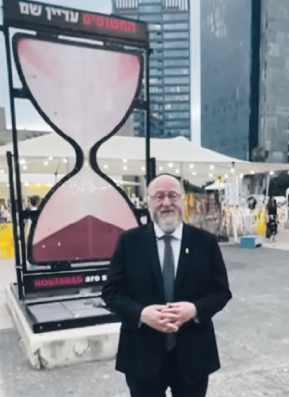
David Lammy has described the UK government’s relationship with Israel as “a complex and intense one” but confirmed to MPs “the United Kingdom and Israel, in these times, of course coordinate and work together”.
The foreign secretary told the Commons: “Israel has a right to defend itself and its citizens, but our priority now is de-escalation.
“Our message to Israel and Iran is clear: step back, show restraint, don’t get pulled ever deeper into a catastrophic conflict whose consequences nobody can control.”
He also added “further escalation in the Middle East is not in Britain’s interests, nor the interests of Israel, Iran or the region”.
Shadow foreign secretary Priti Patel noted that “relations between this government and Israel have become strained since last July” and asked what message did Lammy have “to all those concerned that constructive dialogue and diplomacy with Israel is not taking place?”
Lammy admitted the UK’s “relationship with Israel remains a complex and intense one”, adding: “I have
spoken to foreign minister (Gideon) Sa’ar on numerous occasions – he was in a bunker when I spoke to him on Saturday, separated from his family. I offered him condolences, and as you would expect, the United Kingdom and Israel in these times coordinate and work together.”
“We have disagreements, of course, and we’ve discussed that over this despatch box particularly about the humanitarian situation in Gaza, but we recognise that there are many Israelis as we speak in their bunkers, that there have been 21 casualties over this last period, and over 500 people injured.
“There is a sense of trauma compounding trauma in Israel and I want to reassure her that we recognise that.”
Lammy also revealed he had met earlier with Yocheved Lifschitz, one of the hostages released by Hamas.
He paid tribute to the 86-year-old woman “whose courage and dignity in the face of Hamas’ barbarism was a reminder of the plight of those still cruelly held.”
The government “will not stop striving to free the hostages and end the war”.



Daniel, is an Israeli singer born in Kibbutz Be’eri and a survivor of October 7, where he tragically lost his parents and a finalist in Israels TV show, a rising star.

This show tells the story of the first University in Israel, born from a Zionist dream more than 120 years ago that transformed into a global scientific powerhouse. Through the eyes of students, faculty, philanthropists and leaders across generations, this show tells the story of Israel’s history and chronicles groundbreaking achievements, enduring hardships and the Technion’s pivotal role in shaping the state of Israel.




British Jews unable to get home from Israel as Iranian rockets rain down on cities have revealed the fear and chaos they have experienced, with many sheltering in safe rooms and scrambling for updates on flights home, writes Michelle Rosenberg.
Yoel Levy, 26, a fitness coach from Manchester, said “It’s impossible not to think about how much Israelis have been through over the past few years. Being in a shelter now feels like just part of the reality here. It’s scary, but also strangely comforting.
“You are surrounded by people who are going through the same thing. The next morning, you see the tired eyes behind the sunglasses, people exhausted but still moving forward.”

He added: “The strength of the people here inspires me. It makes me even prouder to stand with them.”
Sam Joseph, a 31-year old London-based volunteer medic with Magen David Adom, messaged Jewish News from Amman airport in Jordan on Monday afternoon. He had been in Israel for a week. “This occa-
sion was volunteering as usual – nothing to do with the current situation. I came down to Jerusalem for Shabbat and then it all kicked off.
“Airspace is closed,” he adds and “as soon as Friday morning came about people were looking for alternative ways out.”
Joseph spent hours on the road from Jerusalem before trying the Allenby crossing which was “too busy”. He then travelled another 60 miles north to the Jordan River crossing,





it’s difficult because the sirens come. We wait in the safe room and then you read the news and that’s not good either.”
Ivor Levene, 74, from Borehamwood, with his wife Sue, 73, came to Israel to visit their son Ilan, who made aliyah in 2009, and his Israeli wife and two grandchildren.
Based near Yamim, southern Netanya, they had planned to stay for four weeks, but had their flights home cancelled.
describing “the transit out to Jordan, more stamps, more money, and then a taxi two and half hours back down the other way to Amman”.
The cost of his ticket was four times the normal price he said, but he had a second-round job interview lined up so needed to get back the UK. His main complaint was that it was a dry airport: “I can’t even get a Goldstar Beer,”
Stephen Cantor, 69, from Hale, Manchester, came to Netanya to visit family. His visit was scheduled for 12 days; he was then due to fly to Crete for a few days before returning home.
He says it’s “strange because during the day it’s quiet. Netanya is very quiet. There are not many people or cars out. Restaurants are closed. The beach is quiet. We’re lucky because we’re here with family and friends here. We’re trying to make the best of it and look for positives.”
But, he adds, “when it comes to night time
Levene said the experience was difficult to describe. “There are cars around, most of the shops closed, but it’s very surreal. We have no idea how long we’ll be here. We could go by land to Amman and perhaps get a flight from there; or to Egypt and via Sharm el-Sheikh. But these are not guaranteed options and you don’t know what’s going to happen on the way.”
Deborah Clayden, 51 from Elstree, Hertfordshire had flown into Israel for a family wedding in Herzliya. Writing on her Facebook page, she said: “We went to bed discussing what a wonderful wedding it had been and how blessed we felt to have been a part of it. Then, at 3:15am, we were awoken by the piercing beeping of the bomb warning app on our phones. We knew this meant we had 90 seconds to reach our safe area.
“After around 30 minutes we were told we could return to our rooms. I managed to fall back to sleep only to be woken at 4am for a second visit to the shelter.”
Clayden added: “My brother has organised transport for me but it’s not without risk. I’m undecided, hearing conflicting advice from different people and my mind is racing. We have no idea when the airport in Tel Aviv will reopen.”
Foreign Office officials are reportedly exploring the possibility of securing charter planes to help evacuate stranded Britons from Israel when airspace is opened again, writes Lee Harpin.
UK citizens and dual nationals have been urged to notify the Foreign Office so that it can assist with efforts if they wish to leave.
In the Commons, David Lammy said on Monday the Foreign Office was sending support teams to Jordan and Egypt to help people who were able to cross the borders with Israel by land.
But many of those stranded in Israel are either unwilling or unable to overrule local advice to stay at home to make the journey by land to the Jordanian or Egyptian border so they can flee.
Former Labour MP Louise Ellman is among

those still stranded in Israel, having flown there to join a Board of Deputies delegation, which was scheduled to have begun last Sunday but was cancelled as a result of the airstrikes on Iran.
Ellman, who is staying just outside Jerusalem, confirmed she had spoken with Middle
East minister Hamish Falconer who she said was “very understanding” about her plight, and the need to put on repatriation planes for Brits wanting to return to the UK.
“I had a very helpful conversation with the minister, who told me to register with the Foreign Office,” said Ellman. “I’m now hoping we can see action in terms of flights being put on, when and if airspace is opened up.”
Ellman, who has spent days and nights in and out of shelters, said that attempting to make an exit via the Jordanian border was difficult for her to do, aged 79.
“I’ve felt edgy, and it’s been unnerving not knowing what has happened,” said the former Liverpool Riverside MP, who added that she was pleased with Israel’s successes against the regime in Tehran.
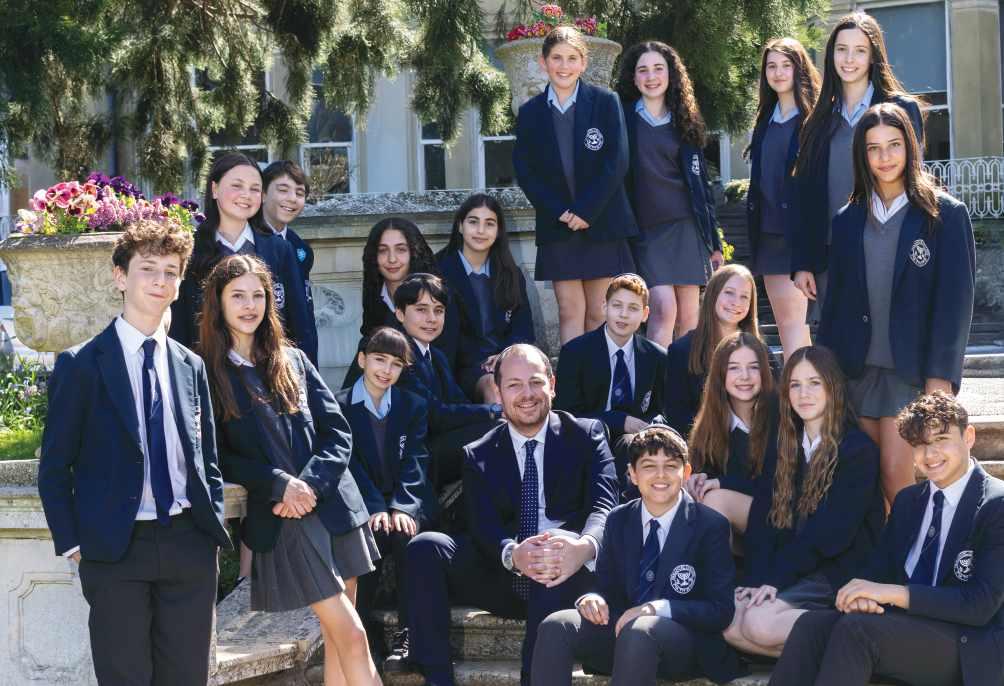
Inspiring new generations of confident, creative and curious minds.
Seeking the ideal school for Year 7 (11+) or other entry points?
We believe in the power of small class sizes, inspiring Jewish education, outstanding pastoral care, and a personalised approach – ensuring every child flourishes.
We offer a generous bursary programme to support an Immanuel College education from 10 to 18.
Register for our Open Evening and start your child’s journey with the Immanuel family.





Sir Keir Starmer has resisted calls for the government to move to a position of immediately recognising a Palestinian state, despite coming under pressure from MPs and trade unions to do so, writes Lee Harpin.
Asked by journalists as he flew to Canada for the G7 summit if the UK would be shifting its stance, he said: “Our position on recognition of Palestine as part of the process hasn’t changed for us. I hold very strongly to the belief that the only long-term
solution to the conflict in the Middle East is a two-state solution.
“However hard that may seem at the moment in the current circumstances, that is the only way to peace. So that continues to be our position.”
A United Nations conference on reviving the two-state solution had been scheduled for later this week, but it has now been cancelled following the conflict with Iran.
French President Emmanuel Macron had hoped a conference,
attended also by the UK and Saudi Arabia, would spark new moves towards recognition of Palestine as part of an attempt to kickstart a peace process. At one stage there appeared to be the possibility of all three countries announcing formal recognition.
Labour MP Jon Pearce, chair of Labour Friends of Israel, has been among those to reject the move.
He told the Independent: “Given the all-too-evident threat posed by Iran’s nuclear and ballistic missiles
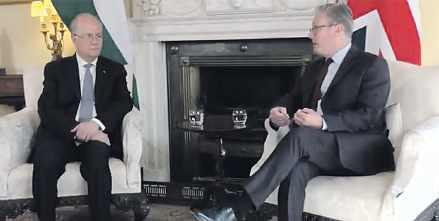
programmes, and its support for terrorism and proxy armies, not just to Israel and the region but to our own national security, it is vital that the UK maintains its diplomatic influence and credibility with our allies.
“Last year, Ireland, Spain and
Israel’s ambassador to the UK has said “Europe owes a huge thank you” for its strikes on Iranian nuclear infrastructure.
Tzipi Hotovely insisted the operation was an act of self-defence and argued Iran had rejected diplomatic e orts to ease tensions.
She told the BBC’s Sunday With Laura Kuenssberg: “Europe owes a huge thank you to Israel for doing that, and the Gulf countries as well.
“Our region would have been a place that is not safe for anyone if Iran had accomplished their plan.”
Referencing past airstrikes on suspected nuclear
sites in Iraq in 1981 and Syria in 2007, Hotovely added: “The international community owes a huge thank you to Israel and it’s the same case here.”
Her comments come amid international calls, including from the UK, for de-escalation between Israel and Iran.
Meanwhile, Rachel Reeves has indicated that the UK could “potentially” support Israel amid the conflict in the Middle East.
The chancellor told Sky News that she was “not going to rule anything out at this stage” given the “fast-moving situation”.
Left side
Norway unilaterally recognised a Palestinian state, but it changed nothing on the ground. If Britain were to follow this course, we would inevitably damage our reputation as an impartial broker and reduce our ability to have an impact.”
Asked whether the UK would come to Israel’s aid if asked, she told Sunday Morning with Trevor Phillips: “We have, in the past, supported Israel when there have been missiles coming in.
“I’m not going to comment on what might happen in the future, but so far, we haven’t been involved, and we’re sending in assets to both protect ourselves and also potentially to support our allies.”
Pushed on whether the UK would deploy assets in support of Israel if asked, she said: I’m not going to rule anything out at this stage.. But we don’t want to see escalation, we want to see de-escalation.”
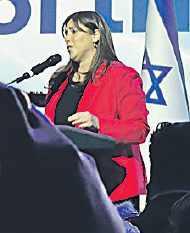










29–30 JUNE 2025
Help us build more and do more, so we can support everyone in our community living with physical disabilities or vision impairments who needs our services. 36 HOUR
The Weizmann Institute of Science has confirmed multiple buildings on its Rehovot campus were damaged on Sunday after an Iranian missile struck the area, and damaging parts of laboratories, writes Annabel Sinclair.
Footage cited by The New York Times showed flames engulfing at least one lab building, with debris and shattered glass scattered across the site.
The missile impact was part of a broader barrage targeting central Israel in the early hours of 15 June. Alan Monziani, a PhD student from Italy residing in the campus dorms, told the Times: “It’s hard to say if it was a direct hit or shrapnel,” describing the scene as “shattered glass and fire breaking out at the site”.
In a statement, the Institute said: “We are profoundly relieved that no one was harmed, and we thank you for your messages of support and solidarity during this challenging time.
“The Institute is taking all necessary measures to ensure the safety of everyone

on campus. As we assess the full extent of the damage and plan next steps, we will keep you informed.
“Our thoughts are with our friends, colleagues and loved ones in Israel. Together, as a Weizmann community, we will rebuild with renewed resilience and continue our mission to advance scientific discovery for the benefit and future of humanity.”
The explosion caused widespread damage in surrounding areas. Images show roads strewn with debris, blown-out windows, and extensive fire damage across parts of Rehovot. The extent of damage to specific research projects or sensitive equipment is still being assessed.
The attack came amid escalating hostilities between Israel and Iran, following Israel’s launch of Operation Rising Lion targeting Iranian nuclear and military infrastructure. Iran’s response, involving dozens of missiles, marked one of the most direct

strikes on Israeli civilian and scientific infrastructure to date.
While there were no injuries reported on campus, local reports indicated multiple civilian injuries across Rehovot. The Weizmann Institute remains in contact with security and emergency services as cleanup and damage assessments continue.
The Maccabiah Games, due to take place next month, has been postponed for a year owing to the ongoing situation in Israel. Officials from the international Jewish sporting event announced the news on Monday.
Jonathan Prevezer, chair of Maccabi GB, wrote: “Maccabi World Union, the organisers of the Maccabiah, have made the decision to postpone the Games until July 2026.” While decision had been correct, it had not been easy, he said.
Right side

“Following ongoing security assessments, it has been deemed neither possible nor appropriate to continue with preparations at this time. The safety and security of all athletes, delegations, and supporters remains the top priority for everyone involved.”

UJIA is monitoring the Middle Easat conflict daily as hundreds of British teens prepare to travel to the region for summer programmes.
With rocket exchanges continuing between Iran and Israel, the charity has written to parents of the 800 youngsters due to take part in educational tours in July and August.
UJIA Israel Experience, a joint initiative with the Jewish Agency for Israel, partners with youth movements including BBYO, Bnei Akiva, Ezra, FZY, Habonim Dror, JLGB, LJY-Netzer, Noam, RSY-Netzer, Sinai Youth and Tribe.
UJIA said it sends its thoughts and prayers to all those current in Israel. “We hope for a safe and speedy resolution to this conflict. We continue to be in close communication with our security partners on the ground in Israel.”
The charity added it was “working around the clock with security partners, tour providers and El Al to explore all options for programming this summer and thank you for your support and patience during what we know will be a challenging time for you and your children. The safety and security of participants will always be central to any decisions we make, and we continue to do our utmost to protect funds and then recover as much as possible for you in the event of cancellation.”
Its priority is “to assess the viability of groups travelling to Israel from 30 June-2nd July”. It adds that youth movements “will be in touch to update you of any changes or decisions as they are made.”
My life changed overnight. After having my leg amputated, JBD offered me the housing and support I needed to retain my independence.
From AI diagnostics to lab-grown meat, Hebrew University of Jerusalem turns 100 with its eyes firmly on the century ahead, writes Annabel Sinclair
A century ago, on a hilltop overlooking Jerusalem, a university was born out of letters and dreams. Its founders –among them Albert Einstein, Sigmund Freud and Chaim Weizmann – imagined a place where Jewish intellectual life could flourish, long before the State of Israel itself existed.
Today, Hebrew University has six campuses, more than 24,000 students, and a research impact that stretches from seed banks in East Africa to diagnostic breakthroughs in Jerusalem’s neurobiology labs. And as it celebrates its 100th anniversary this month, it is not marking time with nostalgia – but with purpose.
“We’re not just preserving legacy,” says Prof Asher Cohen, the university’s president.
The university’s fingerprints are everywhere. It was Hebrew University scientists who developed Exelon, one of the most widely-used drugs for Alzheimer’s. Its tech helped to track the Boston Marathon bombers. And one of its spinouts – Mobileye – now powers autonomous vehicle systems used by major car makers worldwide.
That leap from research to real-world impact is no accident. Hebrew University’s tech transfer arm, Yissum, has launched more than 260 companies and filed over 11,500 patents.
“We are committed to proactively bridging scientific innovation with societal impact –both globally and nationally,” says Yissum CEO Alon Natanson.
“Our vision positions applied science at the forefront, ensuring our contributions extend far beyond the laboratory, shaping a better future for Israel and the world.”
From startups using AI to detect mental illness to new platforms for sustainable agriculture, the mission is clear: accelerate innovation with global relevance.
One of its best-known success stories is BriefCam, a video analysis company now used around the world in law enforcement and smart-city planning.
“BriefCam was used to identify the perpetrators of the Boston Marathon bombing,” says Yissum marketing and communications manager Tamar Vogel. “That was originally research from Hebrew University – our researchers developed that algorithm here.”
Some of that innovation is edible. On the university’s Rehovot campus, companies like SavourEat and Believer Meats – both founded by HU scientists – are pioneering lab-grown, cruelty-free meat to address climate challenges and global food insecurity.
“Our research is building the future of food – whether it’s precision fermentation, cultivated meat or the AI behind food

optimisation,” Vogel says. “It’s not sci-fi, it’s commercial.”
Other work is medical. In her Jerusalem lab, molecular neuroscience professor Hermona Soreq recently developed a breakthrough blood test that can detect Parkinson’s disease years before symptoms emerge.
By analysing microRNA activity in the brain, her team has found a fast, non-invasive way to intervene early – a global gamechanger for ageing populations. “If you wait for tremors, it’s too late,” Soreq says. “We want to catch it in the silent stage.”
That spirit – ambitious, applied, and deeply human – runs through the university’s academic culture. “Our mission is not just to generate knowledge,” says Faculty of Science dean professor Sara Cohen. “It’s to pass it on, to use it, and to develop the next generation of problem-solvers.”
She points to flagship graduate programmes in computational biology, bioinformatics and climate science. “You’ll find a physicist working with a botanist or an AI engineer with a medical ethicist. That’s the power of interdisciplinary thinking.”
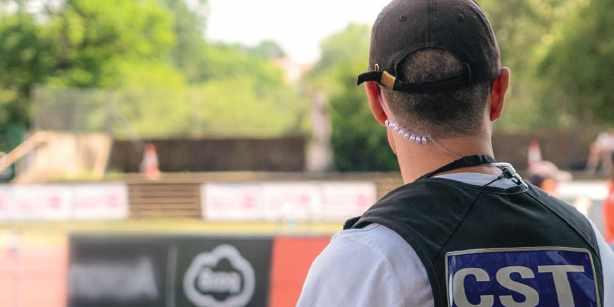
Protecting and securing the Jewish community in the UK against antisemitism is what we do. CST will leave no stone unturned in the fight against those who wish to do us harm.
We need your ongoing and long-term support to continue our work.



One of the university’s most quietly transformative initiatives is the International Master of Public Health (IMPH) programme – now in its 55th year. Backed by the Pears Foundation, it has trained over 1,000 professionals from more than 100 countries, many
from conflict zones or underserved regions.
“The programme’s been going for over 50 years, supported by the Pears Foundation,” says Prof. Yehuda Neumark, director of the Braun School of Public Health. “More than 1,000 graduates from over 100 countries –

and they’re not just getting degrees. Many go on to become ministers of health, WHO advisers and leaders in the field.”
says academic partnerships foster regional trust: “Peace starts with collaboration.”
From cherry tomatoes and Alzheimer’s drugs to quantum processors and global health systems, the university’s story is one of impact – not abstraction. Its second century isn’t a legacy project. It’s a launchpad.



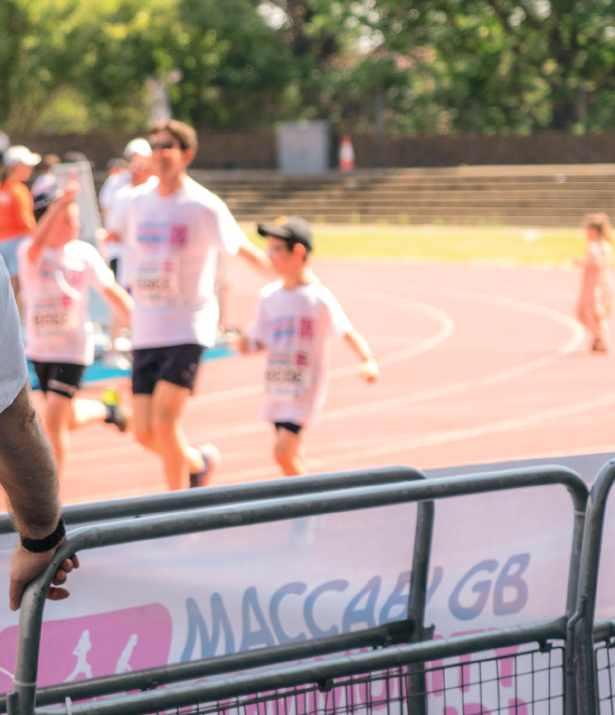
That commitment didn’t waver even after the 7 October attacks. Despite major disruption to student life, research, and teaching, fourteen startups were launched during the war, and demand for programmes in health, medicine, and psychology surged.
“This has been an extraordinarily di cult year,” says rector prof. Tamir Sheafer. “But the resilience we’ve seen – students, faculty, everyone – has been extraordinary. It’s not just about surviving the storm, it’s about innovating through it.”
Part of that strength comes from diversity. Nearly 20 percent of Hebrew University students are Arab, including many from East Jerusalem. Amid national trauma, the university has remained one of the few truly shared spaces in Israeli society. “Palestinian students and Jewish reservists sit side by side in class,” Sheafer says. “It’s a kind of heaven for coexistence.”
Even in diplomacy, the university is playing a role. Chancellor professor Menahem Ben Sasson, former Knesset member and Hebrew University president,
“We’re not just looking to the future,” president Cohen says. “We’re reprogramming it – for Israel, for science, and for the world.”
• Hebrew University has cancelled its 100th anniversary Board of Governors gathering in Jerusalem due to the national emergency following Iranian missile attacks.
The university said the decision was made in line with Homefront Command directives and growing security concerns across Israel.
In a joint message, HU leadership expressed “deep regret” but said safety must come first. It is in contact with international attendees currently in Israel and have pledged support for safe travel home.
The next gathering is scheduled for June 2026. Leaders thanked supporters and expressed hope for “quieter and peaceful days ahead.”

If you need support or are supporting someone else, visit Jamiuk.org/get-support or call 020 8458 2223
• Tax-efficient investing before and after Aliyah
• Tax-efficient income after 10-year tax-free period
• Receive your entire pension pot tax-free
• Specialist portfolio management for Olim
• No Inheritance Tax (for non-UK-situated assets)
We are seasoned experts in providing long-term financial planning advice for those making Aliyah. Scan the QR code to read more
With investing, your capital is at risk. Tax treatments are subject to individual circumstances and are

A significant number of British Jews have had their achievements and services recognised in the King’s birthday honours list, including Holocaust survivor and educator Manfred Goldberg, actress Tracy-Ann Oberman, TV presenter Claudia Winkleman and musician Graham Gouldman, writes Daniel Sugarman.
Last Friday’s list also included honours for leading Jewish community professionals, including World Jewish Relief CEO Paul Anticoni and Community Security Trust head of policy Dr Dave Rich.
David Beckham, who has spoken proudly of his Jewish heritage, received a knighthood. Peter Hyman, a former strategist to Tony Blair and senior adviser to Keir Starmer, will receive a CBE.
WJR chair Maurice Helfgott praised CEO Anticoni on his OBE for services to vulnerable people, saying: “Paul leads our organisation with immense professionalism, as well as kindness, humour and humility.
“This honour recognises the immense passion and dedication with which he has led World Jewish Relief, always prioritising the hundreds of thousands of people across the world who receive our support.
“It also reflects the continued generosity and commitment of our amazing supporters, without whom –he would be the first to say – none of our work would be possible.”
Oberman said she was “honoured to share” she had been awarded an MBE for services to Holocaust education and combatting antisemitism.
She said: “My recent production of The Merchant of Venice 1936 is driven by a commitment to Holocaust education and challenging antisemitism through storytelling. As well as bringing communities
together through shared understanding. This recognition is deeply meaningful and I’m grateful to all who have supported this journey.”
The CST’s Rich said: “I am deeply honoured and absolutely thrilled to be awarded an MBE for my work at CST tackling antisemitism, hate crime and extremism.
“The period since 7 October has been particularly challenging for everyone at CST and the Jewish community, and this honour reflects the unstinting and invaluable efforts of all staff, volunteers and trustees.”
Several individuals, most prominently Holocaust survivor Manfred Goldberg, were honoured for their work in Holocaust Education.
Holocaust Educational Trust CEO Karen Pollock said: “We are delighted to see champions of Holocaust education and remembrance and powerful voices in the fight against antisemitism recognised.
“We are especially thrilled that our dear friend and Holocaust survivor Manfred Goldberg has been awarded an MBE for his extraordinary dedication to educating the next generation,” P:ollock continued.
“His tireless efforts have had a profound and lasting impact, inspiring countless young people and deepening understanding of the Holocaust across the country.”
HET also congratulated other honourees, including Dr Paula Cowan “who has pioneered teaching and learning about the Holocaust for many years”; Paul Flaum, “ a longtime friend and supporter of the Trust”, and Paul Salver, “a dedicated Holocaust Educational Trust educator rightly recognised in this list”.
A number of people associated with Jewish Care also received honours. The charity’s CEO, Daniel Carmel-Brown, said: “On behalf


of Jewish Care, I want to wish a heartfelt mazel tov to our dedicated trustee, Adam Dawson MBE, our caring senior housing manager, Horace Boston BEM, and devoted volunteer, Hilary Halter MBE.
“It is wonderful to see their dedication, commitment and service to Jewish Care, to Jami’s mental health services and to the Jewish community, recognised in this way in the King’s Birthday Honours.”
Dawson, who is also the chair of trustees for Jami and a former vicechair of the London Jewish Forum, received his MBE for services to charitable fundraising and to the Jewish community.
He described how he had been “fortunate to have been supported by my family and numerous friends


and colleagues across the community over 30 years. This is a wonderful recognition of the charities I’ve been involved with.”
Musician Lesley Schatzberger was also among those who received OBEs, for services to children with life-limiting illnesses and communications difficulties.
Jewish MBE recipients included Claudia Winkleman, the TV presenter who has most recently fronted the BBC hit Traitors, for services to broadcasting, while Graham Gouldman, 10cc frontman, received an MBE for services to music.
Gouldman was praised widely within the Jewish community in April for refusing a request from Channel 5 for him to take off his yellow pin worn in solidarity for
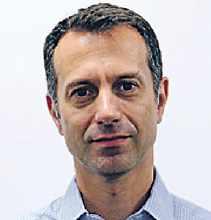
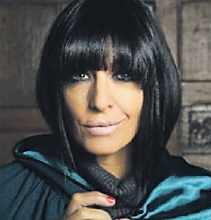
the hostages held in Gaza. Others to receive an MBE included AJEX volunteer Montague Cowen, for services to the Jewish community and to the community in Giffnock, and Jonathan Jacobs for services to mental health.
Also honoured in this category were Brett Mendel for services to sustainability and leadership, and Laura Silverman for services to social innovation and education.
British Empire Medal (BEM) recipients included Doris Levinson, founder and editor of the Sussex Jewish News, for services to Jewish and interfaith charities and to the community in Sussex, and Richard Manning, chair of UJIA programming in Leeds, for services to the city of Leeds and the Jewish community.
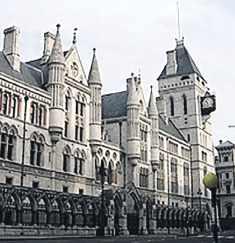
The High Court has dismissed a claim by parents and private schools – including some from Charedi families – against the government’s VAT on fees policy, writes Lee Harpin.
In a judgment on Friday, the judges said the tax, which had appeared in Labour’s general election manifesto, was proportionate in its aim to raise money for state schools.
Significantly, it was stated: “Not every decision to impose tax gives rise to a deprivation or interference with the possessions of the person who will end up paying it.
The judgment, delivered by Dame Victoria Sharp, Lord Justice Newey and Mr Justice Chamberlain, continued by noting none of the parents in this case were obliged to continue
to send their children to private schools and “it is therefore doubtful whether the challenged measure interferes with a ‘possession’ of theirs”.
The justices found that the policy was “made by Parliament, in primary legislation, after full debate and was a manifesto commitment”.
It was also noted that the government was “well aware” some parents wanted to afford to pay for specialist religious schools but that it was “entitled to consider these factors to be outweighed by the expected revenue raised for public services”.
A case brought by 218 families and faith schools, who joined forces with the Independent Schools Council, had argued that the VAT levy was discriminatory, including against Strictly
Orthodox families who could not send their kids to secular schools for religious reasons.
The ruling said the convention did not require the state to facilitate one child’s access to a private school, even if the parents’ reason for preferring a private school is a religious one.
Those bringing the case had argued it was their human right to want single-sex education, and faith-led independent education.
The government has said it would raise at least £1.6bn a year from the policy, which would be ploughed back into state schools and pay for 6,500 more teachers.
Some of the schools and families, including the Christian Legal Centre, say they plan to appeal against the judgment.
Jackie Tabick, the UK’s first female rabbi, looks forward to celebrating with Leo Baeck College and tells Jenni Frazer about her at times fraught journey
Try as she might, Jackie Tabick cannot pinpoint the exact date on which she became Britain’s first woman rabbi — although she knows it was 50 years ago.
Julia Neuberger, who became the second woman to hold the title of rabbi in the UK and later became a dame and a baroness, calls herself “an accidental rabbi”.
Laura Janner-Klausner, who was ordained in 1999, studied theology before entering the rabbinate and, ironically, was the great-niece of the former Orthodox chief rabbi, Sir Israel Brodie, while Eleanor Davis, who graduated in 2024, is another woman who “had no intention of becoming a rabbi”, but now serves happily at Finchley Reform Synagogue.
All four women, and many more, are joining Leo Baeck College’s celebration of this half-century milestone in Anglo-Jewry.
More than 70 women have now graduated from the college, and are so embedded in the community that it is hard to believe the idea
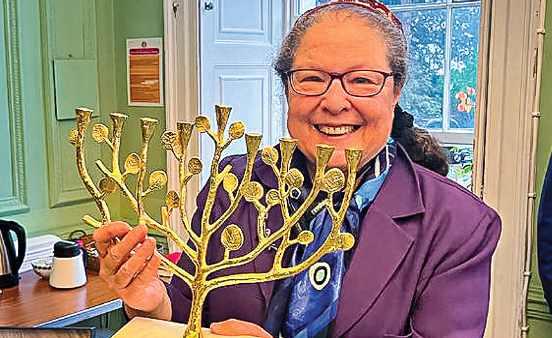

of a woman rabbi was ever thought to be unusual, unacceptable or shocking.
Wider society has changed radically in the last 50 years, but there are still some surprises in speaking to the women, whose career paths have taken them in some dramatic directions.
Jackie Tabick paints an at times depressing picture of sexism and misogyny, both from the Orthodox world in her youth, and later from some of the lecturers at Leo Baeck in 1975, asking questions of her that her fellow male students were never asked.
On the other hand, she says, when she was a devoted member of the World Union of Progressive Judaism Youth, there were towering Orthodox scholars such as Rabbi Adin Steinsaltz who came to speak at one of their conferences — and it was the hugely admired former Orthodox rabbi, Louis Jacobs, who encouraged Tabick in her studies and granted her and her cohort semicha (ordination) at his New London Synagogue.
Tabick, née Acker, was born in Dublin. Her father, who had multiple sclerosis and used a wheelchair, died when she was eight.
“We were members of the Orthodox synagogue, but when my brother had his barmitzvah, someone asked if my father could come [on Shabbat] to synagogue,” she recalls. “It was a very stupid question, because, of course, the answer was no.
“Later on, when I began to learn about halacha, I was furious, and wondered why it wasn’t suggested that my brother could be barmitzvah on a Monday or Thursday, and then my father could have gone”.
Instead, the barmitzvah took place without her father, and Tabick says her parents were devastated.
After her father’s death, Tabick moved with her mother to Manchester and then to London, where there was an uncle whose wife had converted to Judaism in Dublin through
the Liberal synagogue. The couple were members of South West Essex Reform Synagogue, or SWERS. Tabick’s mother, who had a beautiful singing voice, joined SWERS and then its choir. Jackie recalls: “I started going to cheder. I remember that I was put in a class of six-year-olds because I couldn’t read Hebrew, but I learned in a few weeks.”
She also sang in the choir, became a devoted member of the congregation and was fortunate to be there at the same time as the “inspirational” Rabbi Dow Marmur, a giant of Reform Judaism. He coached her privately so that she was able to take a GCSE in Hebrew, unusual for the time, not least because she was the only Jewish girl in her school year.
With becoming a rabbi not yet on the cards, Tabick studied history at University College, London, specialising in the mediaeval church, and thought she would become a teacher. Nevertheless, she was still passionate about studying Judaism, and so applied to Leo Baeck while at the same time she wrote to the legendary West London Reform Synagogue rabbi, Hugo Gryn.
“After I wrote to Hugo my application was considered,” she says. “Until that point it wasn’t. I was interviewed and asked if I wanted to become a rabbi. I said I didn’t know. My fellow male students were, of course, not asked that question. I was asked if I could read Hebrew — my fellow male students were not asked that question. I had to prove that.”
She was accepted as a Leo Baeck student, but initially did not receive a grant “and was very, very poor”. Rabbi Gryn organised a job for her at West London. “Leo Baeck students used to be sent to Reform and Liberal communities all over the country but I stayed only in West London. They didn’t send me to other communities because they were frightened of what the reaction might be.”
What actually “tipped me over”, she says, was a casual remark from Rabbi Louis Jacobs, one of her lecturers. In between picking books off his shelves, he suddenly turned to Tabick and said: “You know, there’s nothing wrong with being a woman rabbi.”
So 1975 became a momentous year. Tabick and her husband Larry, who qualified as a rabbi himself after her, married on Lag b’Omer and have just celebrated their 50th wedding anniversary. Of their three children, one is a Masorti rabbi and another is a teacher of Talmud in New York.
Though nominally retired, Tabick remains convenor of the Progressive Bet Din in Europe and still takes occasional services. She spent much of her long and distinguished career at West London, and reports early misogyny there. One congregant even complained that her singing voice was not lower.
She sums up her watershed achievement calmly: “I always wanted to be accepted as a rabbi who happened to be a woman, rather than as a woman who happened to be a rabbi”.






As the sirens go o and people run for shelter, the Magen David Adom teams run to the scenes of destruction.
They have one job. To save lives.
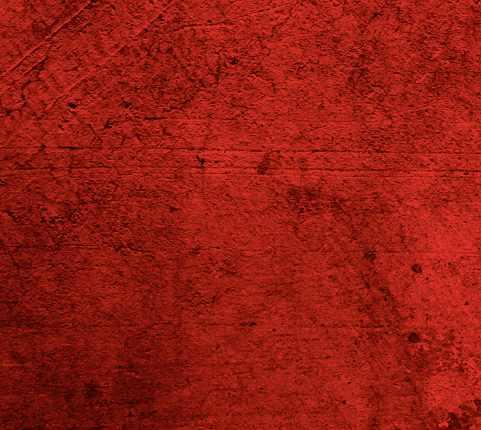

The cost to be on the highest level of alert is an additional £150,000 per day. Over £1m a week.
To help MDA save more lives, visit mdauk.org/donatenow or scan the QR code.



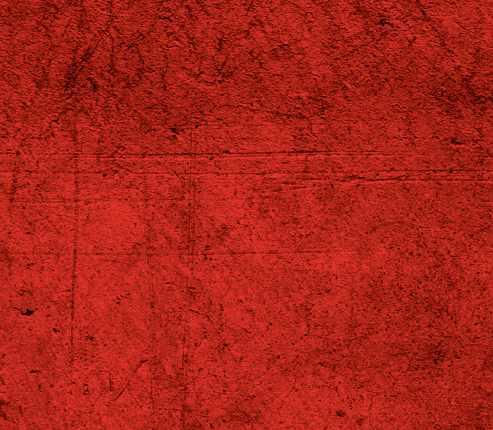

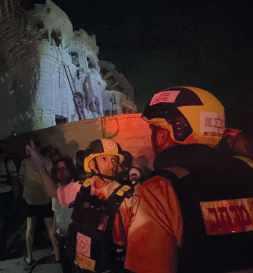
Peers have backed an amendment attempting to clarify that any learning centre built alongside a Holocaust memorial in Westminster should retain a focus on the Shoah itself and the scourge of antisemitism, writes Lee Harpin.
But after more than seven hours of intense debate, there is still little clarity on when, or if, a Holocaust Memorial and Learning Centre in Victoria Tower Gardens would be built.
As the Holocaust Memorial Bill returned to the Lords for its report stage, faith minister Lord Khan confirmed the government continued to support the project, now estimated to be costing more than £140 million.
One amendment moved by Lord Verdirame sought to address concerns of “instances of Holocaust commemorations forgetting about
the Jews or of such events being used as platforms for other messages”.
The non-affiliated peer added: “With this amendment, Parliament would send a clear signal that whatever the disagreements about the memorial itself might be, there would have to be none of this nonsense in this learning centre willed by Parliament and right next to Parliament.
“Our amendment contemplates a lesson beyond the Holocaust about which the learning centre should seek to educate visitors. It is the most obvious lesson that should accompany Holocaust education: educating about antisemitism.
“The rise of antisemitism is one of the great moral failures of our times.
“In our country 33 percent of religious hate crimes recorded in the year ending March 2024 targeted Jews, who make up barely 0.3 percent of the British population.”
Supporting the amendment, Tory peer Lord Pickles added: “I am very sympathetic because I went through the same process myself a few years ago, after the 2017 election, when the prospect of a Jeremy Corbyn prime ministership was a real and present danger.
“I certainly could see the possibility that the Holocaust memorial would turn into some kind of genocide museum or genocide and slavery museum and be completely watered down.”

Jewish Care Scotland’s former deputy chief executive has admitted embezzling more than £50,000 from the hardship fund.
Catherine Bell, who also acted as the Jewish charity’s director for social care, was responsible for distributing money to members of Scotland’s Jewish community who experience financial hardship. Bell, 70, admitted at Paisley Sheriff
Court, taking £54,435 between 1 October 2013 and 25 October 2018.
Jewish Care Scotland, based in East Renfrewshire, is the only Jewish care charity in Scotland. It is not part of the Jewish Care charity in England.
Procurator fiscal depute Jason Stark told the court that “from February 2015 onwards, the accused would on a weekly basis apply for hardship funds by completing the
hardship grant forms”. These related to four specific families, which she referred to as “the usual four”.
The money amounted to £210 a week plus occasional one-off payments. A witness at the trial confirmed counting out the money, which was put in four separate envelopes and given to the accused, with the latter claiming that she then delivered the money to a specific location,
the Richmond Fellowship, where the families would collect it.
In 2018, the then chief compliance officer of the charity, Julie Marshall, began what was described as a “compliance check”, to ensure the charity’s staff qualifications were in order.
Mr Stark said: “Over the coming days, it was identified by that the accused was not registered on the Scottish Social Services Council

£50,000
(SSSC) for social workers. On October 29, 2018, [the witness] notified Marshall of the accused’s ‘usual four’. Marshall had no knowledge of these payments.
“Information was then obtained from the Richmond Fellowship and ... it was confirmed that no money had been delivered or obtained by them.” Sentencing in the case has been deferred until next month.
Amid the current unprecedented threat to Israeli civilian populations, Yad Sarah teams are providing vital home health care and social assistance through a wide range of services and equipment, while maintaining the highest safety standards and adherence to Homefront Command restrictions.
Since the launch of Israel’s “Operation Rising Lion” against Iran, Yad Sarah’s Emergency Medical Hotline has responded to 2,207 emergency calls from across the country with life-saving assistance.
We’re in the business of improving people’s wellbeing. That’s why our free, stand-alone 50-minute online training sessions give you invaluable knowledge and skills to help you take care of yourself and others.
Self-Care and Stress Management
Reaching Out to Someone Who’s Struggling
Stress-busting Practical Relaxation Session
Introduction to Mental Health
Understanding Mental Health Conditions
Reaching Out to Someone Who’s Struggling

and confidential consultation: 020 8732 6101 | enquiries@kkl.org.uk











Lord Katz has confirmed he standing down as national chair of the Jewish Labour Movement with immediate e ect due to the demands of his new role in the House of Lords, writes Lee Harpin.
Katz, recently appointed by the prime minister as a whip in the Lords, emailed JLM members saying: “As a member of the government, I cannot give JLM the independent leadership it deserves and which I hope I’ve given the organisation up till now.”
He wrote that since his taking over as chair in early 2019 – he previously served as vice-chair from 2015 –JLM had helped to take the party on a “huge journey... – from a place where the leadership was in total, visceral denial about the racism its Jewish members were experiencing to one where we have a leader and prime minister who made tackling antisemitism his top priority for the party.
“The landmark, hugely critical
EHRC report into the party vindicated our position and set the future direction for the Labour Party.
“I was proud to represent our members on the advisory body set up by Keir Starmer to ensure the Party met the EHRC’s recommendations and introduced an independent disciplinary system.”
On Israel he wrote: “Of course, we have been devastated following the horrific terrorist attack by Hamas on 7 October 2023 and our unfolding despair at the plight of the hostages, the impact of the war in Gaza and the growth of far-right populism in the Israeli Government.
“Whilst directly influencing the course of events in Israel seems beyond us, I’m pleased to say that JLM’s relationship with Yair Golan MK and the Democrats is stronger than ever, as is the case with the World Labour Zionist Movement and all our friends and colleagues in Israel who strive for a peaceful, long-
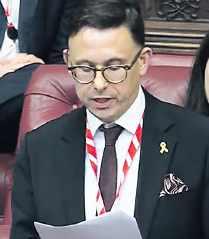
term two-state solution.”
Jewish News understands that current JLM vice-chair Ella RoseJacobs will be appointed acting interim chair. Elections will then take place for a new national chair at JLM’s AGM in November.
A popular figure as head of JLM, Katz is widely credited with ensuring that the movement has continued to
grow in size under his leadership, with a younger generation of proud Jewish Labour activists now ready to step up in the organisation.
As national chair Katz won plaudits for his role in helping current Labour leader Keir Starmer with implementing the recommendations of the Equality and Human Rights Commission report, including training MPs, party sta and thousands of members.
He has remained close to the Labour leader and those around him.
It was no surprise to see the Prime Minister, and his wife Victoria shake hands with Katz outside Downing Street as they celebrated last July’s general election victory.
Starmer nominated Katz for a life peerage in December as part of that year’s political peerages.
Katz previously served as a councillor in Camden from 2010 to 2014 and was the Labour parliamentary candidate for Hendon in 2017.
A major survey has been launched by the Institute for Jewish Policy Research (JPR) to assess the opinions and experiences of British Jews in the aftermath of 7 October.
The 2025 Jews in Uncertain Times Survey is open to anyone in the UK aged 16 or over who identifies as Jewish. It will collect data on views about Israel and Gaza, antisemitism, and the state of Jewish communal life.
Dr Jonathan Boyd, JPR’s executive director, said the study was essential to guiding decisionmaking across the community and in government. It was designed to ensure that leaders and politicians have a “full and credible picture of Jewish opinion”, he said, “particularly around Israel and antisemitism in the post-7 October context, but also on critical issues concerning how to sustain the Jewish religious, educational and social care frameworks that support so many of us”.
The survey is the seventh to be conducted using the JPR Research Panel. Respondents take part anonymously. The organisation aims to provide policy-relevant data to strengthen Jewish life in the UK.
Israel’s bold assault on Iran’s nuclear infrastructure is not just another flashpoint in a volatile region. As our columnist Dr Jeremy Havardi writes on page 23, it marks the moment the mask slipped, when the Islamic Republic’s hollow bravado collided with cold reality. In the space of a few days, Israel decapitated the IRGC’s leadership, took out swathes of its nuclear programme and exposed the regime’s impotence. The ayatollahs – long feared, long emboldened – have been left scrambling.
But make no mistake: this isn’t just about Israel defending itself. It’s absorbing missile after missile for Europe and the entire democratic world. While Iran arms Hezbollah in Lebanon, bankrolls Hamas in Gaza, launches proxy wars across the region and supplies drones to Russia for use against Ukraine, the West dithers. Israel acts.
Let’s be brutally clear: no Iran, no Hamas. No 7 October massacre. No 1,200 murdered Israelis. No 250 kidnapped Israelis. No rocket attacks on Haifa. No Red Sea blockade. No Houthis threatening global trade. This isn’t just one rogue nation. It’s the engine room for global jihad.
This week Israel forced the world to face a truth we’ve ignored for decades: Iran is the problem. Not just a problem. The problem.
The fallout from Israel’s strike is already reshaping the region. Iranian proxies are in retreat. The regime is rattled. And back in Tehran, millions of ordinary Iranians – those long-silenced by fear –now know the mullahs are not invincible.
For too long, the West has outsourced its defence to platitudes. Israel doesn’t have that luxury. When it acts, it does so on behalf of all of us. It shouldn’t have to stand alone.
Dr Jeremy Havardi, in his excellent opinion piece (‘Israel’s strike on Iran was necessary, overdue – and heroic’, 13 June), notes that the International Atomic Energy Agency has announced Iran now possesses enough uranium enriched to 60 percent to potentially build nine nuclear weapons, and adds that the true number may be even higher.
Yes, the IAEA board of governors has found the Islamic Republic to be in breach of its nuclear non-proliferation commitments. Yet, at the same time, pro-Palestinian demonstrators gathered in London’s Parliament Square last Saturday chanting “Stop bombing Iran”. By showing support for the Islamic Republic and waving Iranian flags, they are effectively backing the very regime the IAEA has declared to be in clear violation of its nuclear obligations.
What is astonishing – though sadly no longer rare – is the radical left’s ideological
Jordan’s ban on the Palestinian-supporting Muslim Brotherhood in the name of political and economic modernisation has wider implications than those mentioned by Aloay Alshareef (‘Ban signals a shift to Gulf-style pragmatism’, 5 June).
King Abdullah II, who never misses an opportunity to throw vitriol at Israel and pushes for a two-state solution, wants to stem the ‘Palestinisation’ of Jordan, where the majority of its citizens are of Palestinian origin. The king, whose ancestry hails from the Hijaz region of Saudi Arabia and is an early 20th-century British implant, inherited 78 percent of Palestine yet has no qualms in calling Israel “the occupier”.
Eda Spinka NW4
doublethink; the very people who once loudly demanded global nuclear disarmament now seem perfectly comfortable with Iran advancing to a nuclear bomb.
Their reasoning seems to echo Schrödinger’s cat: Iran’s nuclear programme is a dangerous case of weapons proliferation they oppose and an unchallengeable sovereign right they support — all at once.
It brings to mind the most famous line from a left-wing writer – one with far greater moral clarity: ‘All animals are equal, but some animals are more equal than others’.
Today’s radical left, in aligning itself with one of the world’s most brutal and oppressive regimes, appears to have taken George Orwell’s warning not as a satire but as a guiding principle for its political practice.
David Frencel N4
Spain is once again leading the pack of wolves of anti-Zionism in accusing Israel of trying to bring about a world war by attacking Iran.
Spain’s intervention will no doubt be followed by the usual suspects – those springing to mind including Ireland, Belgium and Luxembourg, all frankly insignificant countries – trying to make a name for themselves by pandering to antisemitism and anti-Zionism.
I urge all Jews and other friends of Israel to boycott those disgraceful countries. Do not go on holiday there, do not bank there and do not buy any of their products.
Ian Portland-Hill W8
I’ve lived in Brent for 28 years and found it a multicultural haven where many different communities live, work and study side by side. I’m shocked and disappointed to learn the annual council meeting has approved twinning Brent with the West Bank city of Nablus. Surely it is a mistake to bring geopolitical,

Thank you for helping to make Jewish News the leading source of news and opinion for the UK Jewish community. Unlike other Jewish media, we do not charge for content. That won’t change. Because we are charity-owned and free, we rely on advertising to cover our costs. This vital lifeline, which has dropped in recent years, has fallen further due to coronavirus.
Today we’re asking for your invaluable help to continue putting our community first in everything we do. For as little as £5 a month you can help sustain the vital work we do in celebrating and standing up for Jewish life in Britain.
Jewish News holds our community together and keeps us connected. Like a synagogue, it’s where people turn to feel part of something bigger. It also proudly shows the rest of Britain the vibrancy and rich culture of modern Jewish life.
You can make a quick and easy one-off or monthly contribution of £5, £10, £20 or any other sum you’re comfortable with. 100% of your donation will help us continue celebrating our community, in all its dynamic diversity.
Support Jewish News by visiting our donor page at jewishnews.co.uk
sectarian polarisations to our streets. Councillors may see the proposal as a vote winner but Brent taxpayers may be looking more at the cracks in our pavements, the potholes in our roads and the huge costs of dealing with illegal fly-tipping.
Mel Hacker
Wembley
















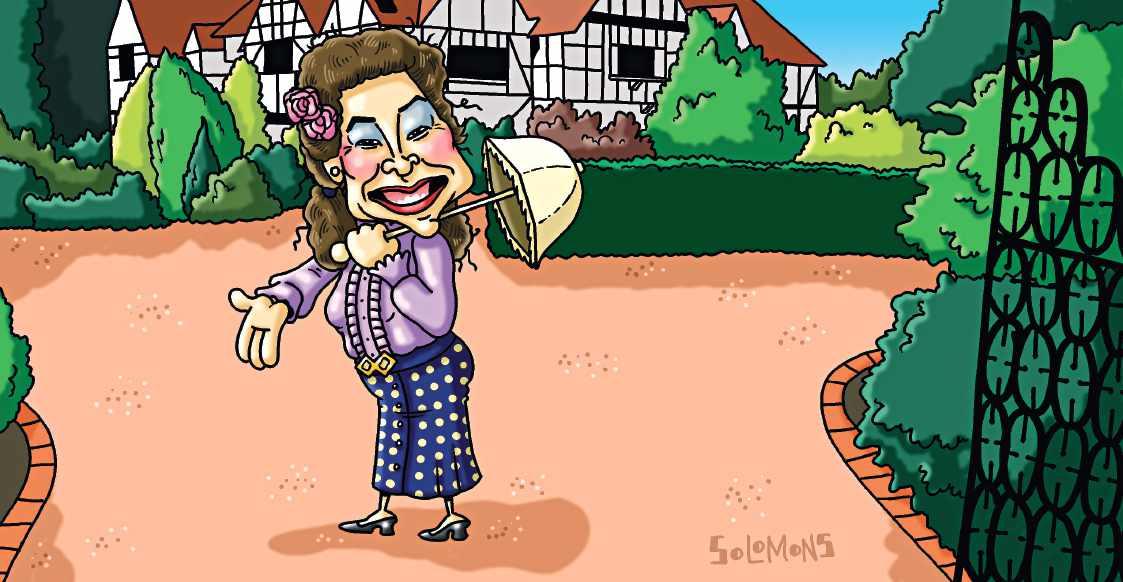
‘To anyone offended by my Nazi salutes while filming Would I Lie To You?, let me assure you that I am not a Nazi... I am a lady’
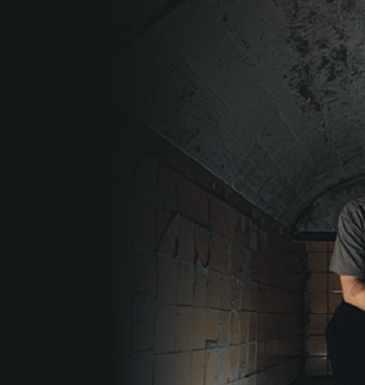

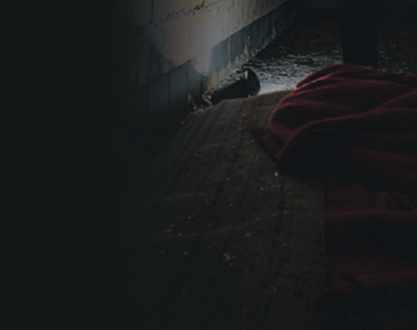







JONATHAN HAROUNOFF
ISRAEL UN SPOKESMAN
One of Elie Wiesel’s best-known aphorisms is among his most evergreen: “When someone says they want to kill you, believe them.”
Even since the Islamic Republic of Iran’s revolutionary origins in 1979, its ruling clerics have remained singularly hellbent on Israel’s annihilation. The rhetoric has not been ambiguous, nor has it been metaphorical. It has been unequivocally genocidal.
From former president Mahmoud Ahmadinejad’s infamous statement in 2005 that Israel was a “disgraceful blot” that should be “wiped o the face of the earth” to Supreme Leader Ali Khamenei’s prediction in 2015 that Israel would cease to exist within 25 years, the threats have been clear and consistent.
Anyone with an internet connection can see the regime’s appetite for Israel’s destruction has not abated. Search “Tehran Palestine Square” on Google Maps, and you find a huge

digital clock ticking down with chilling precision to what the regime hopes will be Israel’s demise. It’s not underground. It’s a state-sanctioned, institutional source of pride.
However, the Islamic Republic didn’t simply fantasise about Israel’s destruction. It prepared for it. For years, Israel has watched – often alone – as Tehran built a clandestine nuclear weapons programme, enriched uranium to near weapons-grade levels, assembled a vast arsenal of ballistic missiles and led international nuclear inspectors down a path of opaque obfuscation.
At the same time, Tehran’s leadership cultivated a web of terrorist proxies – Hezbollah in Lebanon, the Houthis in Yemen and Hamas and Palestinian Islamic Jihad in Gaza — that surrounded Israel from nearly every border.
What Iran-backed Hamas terrorists did on 7 October, 2023, as they butchered, raped, pillaged and kidnapped through Israel, was unspeakable. The deadliest day for Jews since the Holocaust and the bloodiest in Israel’s history. Imagine what the Islamic Republic would have done with a nuclear warhead.
But Israel did not have to imagine. Years






















of intelligence gathering revealed a concrete, imminent plan from Tehran to wage a war of extermination — a more destructive 7 October emanating from all sides of Israel’s border.
Faced with this existential threat, Israel launched Operation Rising Lion, a targeted, pre-emptive strike against key nuclear and military facilities across Iran.
Unlike Israel’s surgical strikes, the Islamic Republic responded by launching more than 1,000 missiles and suicide drones directly at major population centres in Israel, from Haifa to Tel Aviv, Jerusalem and Bat Yam.
Crucially, Israel’s operation was not an act of war against the Iranian people. The Iranian people are not Israel’s enemies.
They have su ered unbearable repression at the hands of the same violent, kleptocratic theocracy that has threatened Israeli lives.
For 46 years, the Islamic Republic has developed a dangerous, destructive foreign policy abroad while allocating tremendous resources at home to enforce draconian hijab-wearing regulations for women, imprison homosexuals and minorities and execute dissidents.
Brave Iranians I spoke to while writing my
book Unveiled: Inside Iran’s #WomanLifeFreedom Revolt had been silenced, beaten, imprisoned and tortured—and yet, they have risen again and again with unmatched bravery.
The Green Movement of 2009. The widespread economic protests of 2017 and 2018. The “Woman, Life, Freedom” uprising sparked by the killing of Mahsa Jina Amini in September 2022. And, most recently, nationwide trucker protests. The people of Iran have repeatedly declared this regime does not speak for them.
The chants of “death to the dictator” were not coming from Jerusalem or Washington DC – they echoed from the streets of Tehran, Isfahan and Mashhad.
For too long, the international community clung to the quixotic hope the Islamic Republic could be reasoned with, negotiated with or deterred by United Nations Security Council resolutions and inspections.
Israel waited – for diplomacy, for inspections, for sanctions and for pressure to work. But when you are a nation born from the ashes of genocide, you do not wait until the missiles fly. You do not ignore the Armageddon countdown clock in Tehran. You stop it.

































INDEPENDENT ALIYAH CONSULTANT
ONE PEOPLE
ONE HEART ONE HOME




DR JEREMY HAVARDI DIRECTOR, B’NAI B’RITH UK
Israel’s war against Iran’s ayatollahs is a seismic moment, not just in the conflict launched on 7 October, but in the history of the modern Middle East. In a matter of a few short days, Israel has become the first major power to isolate, weaken and humiliate the Islamic Republic with devastating blows that have exposed the country’s weaknesses. Israeli strikes have severely degraded much of the Iranian nuclear programme, especially at Natanz. They have decapitated the leadership of the IRGC, killed over a dozen nuclear scientists and targeted key regime figures, such as the head of its armed forces. In addition, they have dealt a significant blow to the country’s economy with attacks on its gas fields.
The ingenuity and audacity of Israeli operations has left the regime in a state of crisis, paralysed by its enemy’s air supremacy and the knowledge that all its assets are vulnerable to attack. It has also emboldened a great number
of Iranian citizens who would dearly love to see Khamenei and his ilk overthrown in a coup.
But Israel’s actions are something else; they are above all a triumphant vindication of western military might, political resolve and intelligence against a rogue state intent on spreading its messianic brand of fascistic terror.
For years, the West adopted a softly softly approach to the ayatollah regime, using financial pressure and diplomatic initiatives to win over its leaders. The fruit of its endeavours was the highly flawed JCPOA, an agreement that allowed Iran to enrich uranium and maintain its ballistic missile arsenal in return for billions of pounds in sanctions relief. The West looked the other way as Iran used this money to bolster proxies such as Hamas, Hezbollah and the Houthis, and provide Russia with drones and ballistic missiles for use in Ukraine. Appeasement was the order of the day.
But the last 20 months have changed Israel’s outlook in fundamental ways. After the 7 October catastrophe, Israelis had an epiphany. They realised they could no longer tolerate genocidal enemies on their borders who were threatening them with annihila-
tion. So, Israel crushed Hamas in Gaza, ignoring repeated pleas for a ceasefire that would have left the Islamists in power.
Israel also ignored calls for a diplomatic solution in Lebanon. In a series of bold military operations, Israel decapitated the leadership of Hezbollah and stripped it of much of its longrange missile arsenal. It then eviscerated Iran’s air defences in the missile exchanges last year, prior to the current aerial blitz that has left the Iranian regime prostate before the Israeli air force. If any proof were needed that a determined western nation can face o against an autocracy, Israel has just provided it.
Indeed, what we are seeing now is not just Israel fighting for her survival against an autocratic foe. Israel is also fighting for the West against a barbaric regime that has long harmed the interests of the UK and many other nations.
Sir Ken McCallum, the director general of MI5, revealed recently the UK had responded to at least 20 Iran-backed plots since 2022, ones that posed potentially lethal threats to British citizens and UK residents. Iran has targeted overseas dissidents, media organisations who expose the regime’s oppression
To get the best value from your private medical insurance, you should speak to an expert who is qualified to advise you on the right policy for you, and recommend the providers who offer the most competitive premiums.
This advice covers individual, family and company policies, and is always FREE.
As an independent health insurance expert, I work with the healthcare insurers to provide you with the appropriate and most affordable level of cover. So whether you have an existing policy or not, let’s have a chat.
and, in addition, has used kidnapping as a tool of foreign policy. Among those detained were the British-Iranian dual citizen Nazanin Zaghari-Radcli e. Iran has also ramped up cyber-attacks against the UK via the IRGC.
Naturally, the US has su ered from Iranianinspired terrorism over many decades. During the 1980s, Iran launched multiple attacks on US targets in the Middle East, the most infamous of which was the bombing of the US Marine barracks in 1983, killing 241 Americans.
Instead of calling for de-escalation, western leaders should be demanding the proscription of all Iranian-funded terror entities, including the IRGC. They should call out the ayatollahs for targeting Iranian dissidents on European soil and denounce its armed support for Putin’s Russia. They should insist at a minimum on the complete dismantling of the Iranian nuclear programme, one which threatens world peace and the nuclear non-proliferation treaty.
Right now, the ayatollahs are at their weakest since 1979 with Israel setting the trigger for regime change. Let us hope the Iranians rise up against their oppressors, and that the West fully supports them.


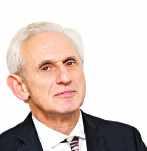
the war in Gaza, currently overshadowed by the battle with the ayatollahs, has done irreparable reputational damage, giving additional firepower to boycott and sanctions activity.
Mddle East wars no longer have the same power to disrupt global energy supplies as they did in 1973, when Arab producers slapped an embargo on the west, thereby generating great inflation and a recession.
Nevertheless, Israel’s audacious assault on Iran’s nuclear capability and Tehran’s ballistic retaliation will have far reaching economic consequences.
Remarkably, given the damage inflicted on central Israel, the shekel, Israeli shares and bonds have all bounced strongly. Global investors are confident that when the tit-fortat exchanges end Israel will emerge stronger. Most of Iran’s proxies have been destroyed and Iran’s nuclear programme disabled if not destroyed.
Over the longer haul that should make investment in Israel less risky than it has been historically. The bigger concern is that
The short-term damage to the economy will also be considerable. Ben Gurion airport is closed, so commercial access to the country by overseas businesses and the tech community is cut off. Government offices, for the moment, remain closed although the pandemic demonstrated that state employees have the capacity to work from home.
Consumers have been stocking up on food and essentials, but a prolonged conflict would present supply problems.
The war in Gaza, now into its second year, has been provided for in the 2025 budget.
The most recent fiscal documents show up to £11bn has been provided for. Current estimates are that a month-long conflict with Iran, involving four rounds of missile exchanges, would cost some £8bn.
The Iran war is costly because of the advanced equipment deployed. There has been no budgeting for the considerable damage done to buildings and facilities
FISCAL DOCUMENTS SHOW THAT UP
although so far major infrastructure, such as oil refining facilities in Haifa, remain safe.
The war is being watched anxiously on markets across the globe. The dollar initially bounced on the foreign exchanges on the outbreak of hostilities, reversing a backlash against Trump tariff and tax bedlam, which has driven the currency down 8 percent this year.
In times of trouble fund managers flee for safety and dollar assets, which currently offer a decent yield, come back into fashion. Gold, the ultimate safe haven, climbed to record levels, continuing a remarkable run.
Nowadays, just one-fifth of Gulf energy production passes through the Staits of Hormuz, with most output heading to Asia.
Self-sufficiency of oil and liquefied natural gas (LNG) in the United States means that one of the world’s largest energy consumers is no longer directly impacted.
Nevertheless, with airports across the Middle East temporarily closed, shipping in danger and the US doubling down on security at its Middle East bases, the threat to energy supplies is very real.
Big oil may have what it needs, a return to higher global prices, but the cost is heavy.
Israel already faces substantial rebuilding costs in the south and the Galil because of damaged inflicted by Hamas on 7 October and by Hezbollah in the north prior to its effective defeat. Of the 60,000 Israeli citizens who left the north of the country for safety reasons, many decided not to return, again because of safety concerns.
If victory over Iran can be delivered, then reconstruction and the return of reserve troops to work will boost output. There are huge uncertainties, but Israel’s markets are betting on victory and a return to growth led by a vibrant tech sector.
Let’s hope they are correct.
DAVID GROM
ARABIC
RESEARCHER, CAMERA
In recent years, one of the most common ways for BBC Arabic editors to keep their audience inside the echo chamber of Palestinian propaganda has been the service’s cultural programmes. From folk music to wildlife, equestrianism to local cuisine, human interest items emerge as an easy method of introducing hateful or violent perspectives, without the need to balance them with views from the Israeli side.
British licence fee payers are growing more impatient with BBC Arabic’s evident failure to challenge this choir of incitement where ’proper’ news is concerned. Culture programmes, on the other hand, are still a realm in which the BBC does not feel as pressured to include the broader context of the conflict to counter contributors who, for example, deny Jewish history or make unfounded speculations about Israelis.
Even news-focused cultural segments can comfortably use the same trick of featuring a partisan commentator as the item’s main voice and this can often go unno-
ticed – though thankfully, not always, as seen in 2021 when the corporation publicly apologised after airing a cosy discussion with Ahlam Tamimi, one of the terrorists responsible for the 2001 Sbarro bombing.
At post-7 October BBC Arabic, it is the theme of art and culture which most frequently serves as a means to that end.
Not long ago, it was revealed how a seemingly innocent item about “national consciousness through the art of storytelling” in fact whitewashed a song in praise of murderers who killed innocent Jews in 1929 Mandatory Palestine.
Furthermore, the BBC film crew, which was present throughout the same storytelling act, edited out parts in which the Palestinian performer in question used antisemitic stereotypes and unambiguously called for violence against “the Zionist enemy”.
Alongside that extreme case, several less pronounced ones have also been featured in BBC Arabic’s Art for Life programme. Examples include: an artist who labelled the world-renowned Tel Aviv 1930s architecture as a form of anti-Palestinian “imperialism”, a concert uncritically echoing the Palestinian promise to “return” to the present-day Israeli cities of Haifa, Akko
and Lod and an artists’ collective praising the decades-long Irish “solidarity” with the Palestinians and their “struggle” – again without addressing the two groups’ joint legacy of targeting civilians as a part of that “struggle”.
Perhaps the most surprising item of this kind was one shown repeatedly for several months on the BBC Arabic television channel, which concerned a past London exhibition presenting “Palestinian voices” by the We Are Not Numbers (Wann) project.
Founded by the dubious Euro Med Human Rights monitor organisation, Wann’s frontman in the UK is Ahmad Alnaouq. As Jewish News and Camera (Committee for Accuracy in Middle East Reporting and Analysis) have noted in the past, Alnaouq is a proud relative of a Hamas terrorist killed by the IDF and has previously declared that Zionism must “be dismantled”.
The BBC’s English-language content also has a record of not informing its audience about his affiliations. Of course, the exhibition is oblivious to Israeli victims, focusing solely on Palestinian ones.
This flattering BBC Arabic item about Wann and its exhibition would not have been unique were it not for a single detail: its
Jewish curator, Taya Amit. A devout token Jew in service of the cause, Amit shared to the camera her belief that the exhibition can educate her Jewish family and friends about what their attitude towards Israel and Zionism is really about, saying that: “the language of ‘settler colonialism, and ‘apartheid’, and ‘the Zionist project’, these are not words that people in my Jewish community are always around, and it’s important for them to hear how they are, how Zionism and Israel is perceived in the world, and to step outside of a bubble that is pro-Israel”.
In short, the only British Jewish voice contributing to the publicly funded Arabic broadcasting service – which for years has carefully secluded its audience from perspectives that might threaten the Arabnationalist view of the conflict – is a voice telling UK Jews it is they who live in their own “bubble”.
Regardless of Amit’s own opinions, to feature her and only her in such manner is a jaw-dropping level of chutzpah, even by BBC Arabic standards.
Unfortunately, judging by the other items documented here, it will take a long and profound process to change this outlet in a way that would prevent such instances from reoccurring.






















Ayear ago, I became an Orthodox rabbi, something I never thought possible in my lifetime, and something beyond my grandmother’s wildest dreams. Being a rabbi so far has been… well my dream job really.
I’ve been able to teach Torah, support people through our painful post-7 October world, give sermons, conduct lifecycle ceremonies, answer halachic questions and grow a community – a community who seem perfectly happy that their rabbi is female. I still have to pinch myself that I’m able to serve the Jewish world in this way, as a woman, and without having to compromise my Orthodox practices.
So it’s emotional to be back at Yeshivat Maharat in New York for the graduation of the next cohort. Maharat is one of a small number of places around the world where Orthodox women can receive semicha.
It’s a significant year, with 25 new female rabbis, a number which has grown exponentially year on year. And it’s particularly celebration-worthy because it takes the number of
graduates of this institution to 100, across five continents and 10 countries.
These women, who I studied alongside for the final three years of my own semicha, are phenomenal. They are learned in secular subjects alongside the halacha, Talmud and pastoral skills we’re trained in, with a number of academics among them.
They are deeply inspiring teachers, pastors and leaders. They are united by their love of studying and teaching Torah. And they are leaders, enhancing communities and initiatives across North America and Israel. Closer to home, one is set to be the new director of community life and learning in Hellsinki, two are community building in Paris, and one is British… so watch this space.
As family and friends in Israel shelter under a barrage from Iran, it is a balm to be able to celebrate something truly positive in the Jewish world.
The events in Israel were nevertheless very present during the semicha ceremony: half the new graduates are Israeli and many were stranded in the USA waiting for airspace to reopen. “You're entering your rabbinate at a very precarious time for the Jewish people,”
said founder and dean Rabba Sara Hurwitz, but “even in the shadow of war, we allow ourselves to name this blessing.”
A United Synagogue rabbi recently told me that while he thought my intentions were good and I was respected leader and educator, the project of being a female Orthodox rabbi at a Partnership Minyan community was ultimately not legitimate because it follows a daat yachid – the opinion of a sole halachic decisionmaker. It got me thinking. First of all, at what point does a daat yachid become a widely accepted position?
With 100 Orthodox women rabbis now ordained by Maharat, and at least another

50 with semicha from elsewhere, this is no niche movement. It got me thinking about all the other daat yachid innovations in Judaism which began as controversial, communitysplitting issues and became utterly mainstream; three examples are women wearing sheitels, sermons being given in the vernacular rather than Hebrew or Yiddish, and religious Zionism (yes, really).
My hope is that we’ll look back at this point in history and see a gracious shifting of the ground to integrate women more and more into Orthodox services and shul leadership. I hope that rather than choosing fear, rejection and the dividing of communities, those in power will choose integration, acceptance and respecting a daat yachid which increasingly proves to be the inevitable direction of travel for any contemporary community.
Our Jewish communities, even the Orthodox ones, have survived because they have adapted. How our Orthodox leadership chooses to respond to the 25 talented new rabbis given semicha this week, will be decisive. I hope they will choose to welcome the new talent, because our communities will be so much richer for it.





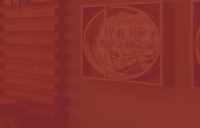





Etz Chaim Jewish Primary School in Mill Hill unveiled the school’s own illustrated Torah at a barmitzvah party this month. The artwork Torah scroll, was created by Michal Meron and features pictorial interpretations of the 54 Sidrot, along with a painting illustrating the 10 Commandments. Headteacher Hannah Martin said: “We want children to be able to enjoy connecting with their Judaism in fun and easily digestible ways.” The Torah was donated to the school by the grandparents of children at Etz Chaim, and each of the five books and individual parshot have been sponsored by parents, grandparents and friends.
Former JFS students gathered at the school’s Kenton campus for a reunion celebrating the years 1958-67. They reminisced about the ‘old days’ and were happy to see how things have changed for their grandchildren, many of whom are JFS students or alumni. The group spent time identifying themselves in old photos, including the first whole-school photo of 1958 with Dr Conway sitting front and centre, flanked by a school roll of 350. Today, JFS opens its doors to over 2,000 students a year. Dr David Moody, the head, said: “I have never worked in a school where there is such a deep connection to the community. The generations of families who hold JFS in high esteem makes working in the school a pleasure.” The next alumni event is in November, for those who started in 1968. Visit jfs.brent.sch.uk to book.
Mitchell Stanton, 61, raised more than £1,000 for Chai Cancer Care by cycling 60 miles in four hours. Mitchell had a heart attack aged 42; since then he has had two complete shoulder replacements and a hip replacement.
Thirty pupils at Wohl Campus, Kisharon Noé School, a Loftus Learning Centre, are taking part in a two-year music programme in collaboration with the national charity Electric Umbrella and with funding from Youth Music. On completion, each student will receive a music qualification from Trinity College London in musical development. Kisharon Noé is the only Jewish school in the country to be selected for the initiative, tailored specifically for young people with special educational needs and disabilities.
Jewish Square Mile, the group formed to reveal the history of the City of London’s medieval Jewish cemetery, is a community member of its local Royal Palace, the Tower of London. JSQ guide Sam Jacobs recently led a tour on which visitors saw a stone from the medieval mikveh discovered in the City. 1,000 years ago. The Tower became a place of Jewish refuge from persecutions, a place of imprisonment and execution when they were accused of crimes and there the Jewish community stood alongside their Christian neighbours defending the walls when it was attacked.

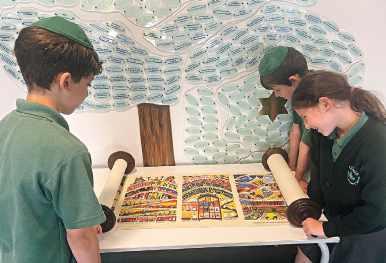






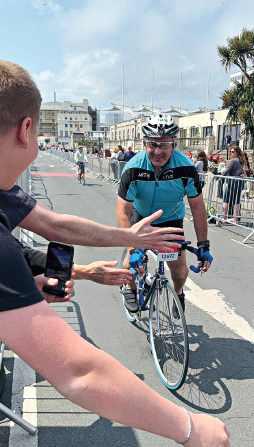




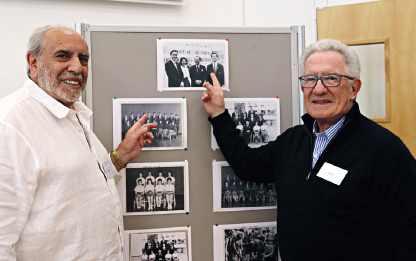








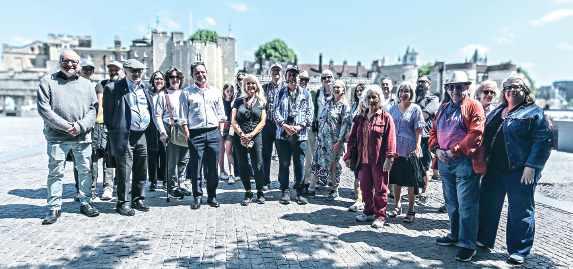
More than 850 young people and their families came together at JFS in Kenton last Sunday for Beit Halochem UK’s annual It’s A Knockout event. Together, they raised £38,000 of vital funds for the 65,000 disabled veterans and victims of terror cared for at the charity’s four rehabilitation centres in Israel.





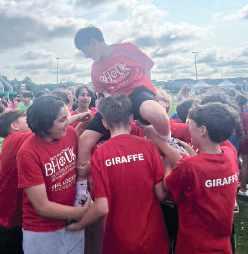
















Ballerina Alicia Markova has been commemorated with a blue plaque. Jenni Frazer looks into the story of her life
If ever there were an image you would be least likely to associate with Dame Alicia Markova, Britain’s first Jewish prima ballerina, it is that of a football fan.
Yet, according to Dr Susan Skedd, English Heritage’s historian, one of Markova’s earliest memories was being carried on her father’s shoulders when she was around two years old, shouting at an Arsenal match: “Buck up, the Reds!”
Cheering on the Gunners stayed with Markova all her long life, and she remained, as Skedd points out, “a north London girl, through and through”. On June 10, English Heritage celebrated this daughter of north London, who became one of the world’s greatest ballet stars, by putting up a Blue Plaque on the outside of her childhood home at 7 Cascade Avenue, Muswell Hill.
But it could all have been so di erent if it had not been for a consultant in Harley Street, who agreed to examine little Lily Marks, as she then was, after she had been diagnosed with “flat feet, knock knees and weak legs”.
The consultant was a ballet fan and he persuaded Lily’s mother, Eileen, to send her daughter to ballet classes to strengthen her legs. Mrs Marks thought it was a good idea, though she cannot have imagined how good.
Lily, who had been born in Finsbury Park in 1910, began attending dance classes at a local school in Muswell Hill, run by a woman called Dorothy Thorne. The eldest of four sisters – one of whom, Doris, became her agent and manager in later life – she and Doris, Vivienne and Berenice would put on performances in the back garden of Cascade Avenue, on a stage built by their father.
Aged just eight, Susan Skedd reports, “she won a talent competition at the Atheneum Cinema in Muswell Hill”, which eventually led to her making her first professional appearance in 1920, when she was still only 10, at the Strand Theatre. She did so well that her parents decided to upgrade her level of teaching, and took her to Chelsea
ballet classes with the legendary Princess Serafina Astafieva, a former star with the Ballets Russes company of Sergei Diaghilev.
former star with the Ballets Russes which brought Lilian Alicia Marks
And it was this connection which brought Lilian Alicia Marks to the attention of Diaghilev, who visited Astafieva’s studio one day and signed the teenager up to join the Ballet Russes in Monte Carlo.

How to rewrite Roald, p32 Business, page 34 Inside A look

She was just 14 and the first version, in keeping with the slightly was a bit disappointed; she recalled more mystical ‘Olga’, but Alicia she
She was just 14 and the first thing that Diaghilev did was to change her name to a ‘Russified’ version, in keeping with the slightly nonsensical tradition that all ballerinas had to be Russian. Markova was a bit disappointed; she recalled later that she had longed to be a more mystical ‘Olga’, but Alicia she remained.
In Monte Carlo she was thrust into a glamorous world of arts and culture: people such as the painters Picasso and Matisse, and primarily the legendary choreographer George Balanchine, who devised many dance steps for the diminutive ballerina that were taken from more athletic movements made by male dancers.
How was Markova’s Jewish identity expressed? According to the Jewish Women’s Archive, one influence was Lily’s Orthodox paternal great-grandfather, Abraham Marks, with whom the family lived briefly when Markova was very young. Abraham, a theatrical costume supplier, fostered young Markova’s theatricality. The sisters would play in his storeroom, making doll clothes and costumes for productions, which Alicia often originated and directed, and which they performed for family and friends.
Arthur Marks was quite wellto-do - he was a mining engineer, as was his father, and even in 1914, when the family is thought to have moved to Muswell Hill, houses in the area were fetching quite a price. Arthur, who had mining interests in Ireland, also produced reinforced rubber for army vehicles in the First World War. He may have met his wife Eileen in Ireland; reports say that she converted to Judaism for Arthur, but it is not known what level of Jewish practice was carried out in Muswell Hill.
Nevertheless, Markova, in her



memoirs, said she had encountered antisemitism throughout her life, being refused permission to dance in certain productions. The dancer Lydia Lopokova, who had married the economist and philosopher John Maynard Keynes, made no secret of her dislike of the Jewish “baby ballerina”.
But Markova dug her heels in — quite literally. One of her biographers, Tina Sutton, in her admired book The Making of Markova, notes that in the dancer’s archive she had not only saved the family’s yearly High Holy tickets for their local synagogue, but also Arthur Marks’ tallit. She also, says Susan Skedd, resisted any suggestions that she should undergo plastic surgery “in order to look less Jewish”, though other dancers such as Margot Fonteyn did go under the knife.
Markova never forgot her Jewish heritage, and performed in benefits in New York to fund the Mann

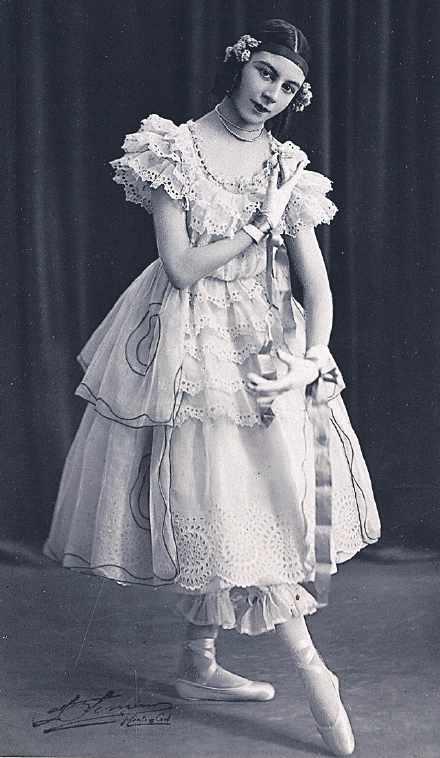
Auditorium in Tel Aviv. In 1958, she toured Israel with Festival Ballet.
Two central events in Markova’s early life propelled her career. The first was the death of her beloved father in 1924, placing a heavy burden on her to become the financial support of her mother and sisters; the second was the death of her mentor, Diaghilev, in 1929.
After numerous twists and turns, Markova proved to be an astute businesswoman, leading tours all over the United States, from big cities to tiny pockets of settlement, where the inhabitants had never heard of classical dance.
She became the supreme interpreter of the glorious Russian ballet teaching tradition, putting on astonishing “light as air”, yet profoundly athletic, performances and making star roles in ballets such as Giselle her own. She was instrumental in establishing British ballet as we know it today, not least
as a co-founder of the Festival Ballet in 1950, now the English National Ballet. She was deeply committed to popularising ballet, famously stating: “Ballet used to be a very closed world... I felt it should be expanded. Why shouldn’t everybody be able to see and appreciate it?” That remained Dame Alicia Markova’s mission throughout her long life. She died in 2004; Blue Plaques are only put up by English Heritage after a person has been dead for 20 years, allowing the plaque assessment panel to judge on the subject’s contribution — and the building where the plaque is placed has to have a seminal connection with the person being celebrated. English Heritage says the plaque “celebrates people from all walks of life who have made a significant contribution to human welfare or happiness, and/or have made an exceptional impact in their field, community or wider society”.
Mark Rosenblatt had the idea for Giant but he never intended to write it. He tells Darren Richman what happened next
Mark Rosenblatt is the toast of the West End but we meet for a co ee in East Finchley. His first play, Giant, premiered at the Royal Court last year to rave reviews and has now transferred to the Harold Pinter Theatre for a run of 14 weeks. At this year’s Olivier Awards, he took home the prize for Best New Play. It’s not bad going for a director in his 40s who didn’t think he was the man to write a play about Roald Dahl.
Dahl, appropriately enough, looms large for Rosenblatt. He grew up loving the books, in print and on cassette, and refers to them as “the wallpaper of my childhood”. He does not remember the moment he first learned about the beloved children’s author’s propensity for antisemitism but there cannot be many people who’ve thought about it more deeply in recent times.



Rosenblatt never had aspirations to be a playwright. He had seen enough plays over the years to be convinced he did not “have the confidence or the skill to hold an audience in that very pure way”. He has written some adaptations for the screen but considers the “exacting demands” of theatre an entirely di erent beast: “You have to keep an audience captive for two hours with one locked o wide shot using language.”
He had the idea for the play and felt it was something he would like to direct if only he could find someone to write the thing. It was pitched to Nicholas Hytner, one of the country’s greatest living theatre directors, and he suggested Rosenblatt try and write it himself. The result is a balanced and moving character study anchored by an extraordinary performance from the peerless John Lithgow.
The play was not written with a single message in mind and Rosenblatt was not















Jewish News is delighted to be entering a digital-first era with the launch of a new website and new regular glossy magazine. We are therefore seeking an enthusiastic, emerging sales force to help navigate this new era and to sell these exciting new products alongside opportunities with our portfolio of events and community-leading social media presence.
• Achieving personal and team sales targets. Working to the teams agreed yield and series framework.
• Championing digital first solutions with a particular focus on substantially growing New Business.
• Building and developing strong client relationships and attending meetings and events.
• Identifying revenue opportunities from new and existing accounts and selling solution based integrated campaigns.
• Successfully communicating and introducing digital campaigns to existing print clients.
• Effectively selling across the website, digital publications, social, newsletters, magazines and more.
• Working closely with the Jewish News Publishing and Editorial team to ensure a smooth and commercially successful relationship.
• Working with the Social Team to sell and implement new parthership content.
• Liaise with the Head of Finance to ensure all revenue is accurately reported and invoiced.
• SALARY: Approx 36k plus generous commission package but flexible depending on experience
Email a brief paragraph about yourself (and attach your CV) to Richard Ferrer – richard@jewishnews.co.uk
interested in “beating Dahl up for two hours. He’s already told us he’s an antisemite in his own language and some of that language is in the play. The pressure was o , in a way. I needed to present complexity… He was complicated and nuanced, as we all are. That felt much more interesting.”
Before he came to Dahl, the intention was to explore “the di erence between meaningful conversations about Israel and Palestine and where it bleeds into antisemitism” in the wake of the inquiry into the Labour Party. Dahl felt like the perfect proxy since he wrote a piece critical of Israel’s actions in Lebanon in 1982 blended with “medieval antisemitic stereotypes”. It was, in Rosenblatt’s words, the “perfect mirror” and, though the writing began in lockdown, Giant feels more relevant than ever in 2025.

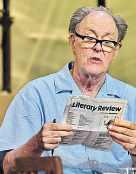

The playwright has no problem separating the art from the artist and still reads Dahl to his sons. Some of the most moving moments in the play involve moments of connection and compassion related to children in peril: “You can’t understand some of his cruelty and anger without understanding the tenacity with which he went about trying to fix problems in his life. His son was very badly injured when a taxi went into his pram and Dahl noticed in hospital that the valve draining fluid from the brain was leaky. He went and invented a new one and got it on the market.”
Rosenblatt thinks the author struggled to deal with those things he could not fix. He felt impotent about the situation in Lebanon so he “threw something at it that was vile”. In conversation and in his writing, it’s clear the playwright is attempting to understand Dahl but not excuse him. Evidently this was a man of contradictions, one who fought the Nazis but would later claim Hitler had his reasons since “there is a trait in the Jewish character that does provoke animosity.” Those words, a verbatim quote used at the play’s denoue-
the normalisation of racism
ment, cause audible gasps on a nightly basis. In the same interview, Dahl chose to refer to Hitler as a “stinker”, an extraordinary word choice from a man renowned for his ability to construct sentences. Rosenblatt thinks the comments remain so shocking because “it incorporates Hitler into a club room, joshing environment. It’s like he’s describing a house prefect rather than one of the worst people ever.” The play is, in part, an attempt to unravel the normalisation of racism and antisemitism through “club room” language and the way in which such behaviour “makes the unsayable sayable”. London theatre has been dogged by controversies about representation and antisemitism in recent years so Giant feels especially timely. There is nothing hectoring or didactic about the dialogue, though, and Rosenblatt has discovered “people from across the political spectrum feel included by the arguments of the play.”
Dahl’s estate has not objected to the play although that would be di cult, given the fact that “the worst things the play says are the things that Roald Dahl himself said”. Some people have seen the play and vowed never to read another book by the author but Rosenblatt will continue to enjoy the work while not losing sight of the full facts about the man responsible for Matilda, The BFG et al.
It is rare to see a great work or art about a great artist but Giant is precisely that. It asks uncomfortable questions and provokes debate without attempting to censor its subject. For Rosenblatt, Dahl was, like the rest of us, “a mass of contradictions” and the result is a fully rounded character who can be as alternately endearing and maddening as a human being we actually know. Not bad going for someone who never intended to write a play. u Giant is at Harold Pinter Theatre until 2 August.
haroldpinthertheatre.co.uk


•
•
•
•
•



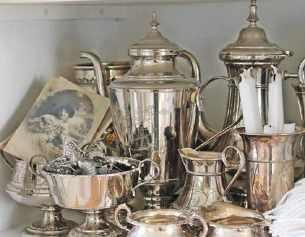










By Candice Krieger Candice@jewishnews.co.uk


Neil Sinclair teams up with fellow industry veterans to seize fresh opportunities in distressed real estate, writes Candice Krieger
t 82, with six decades of business experience under his belt, Neil Sinclair could be forgiven for slowing down. No chance. The property veteran firmly believes “the best years are still to come”.
Having built multiple successful businesses – including as co-founder of Palace Capital PLC, a UK-listed Real Estate Investment Trust (REIT) – Sinclair has now launched his latest venture, Pristine Capital PLC, a listed cash shell waiting to snap up distressed property opportunities. His business partners? Fellow octogenarians and industry experts Stanley Davis, 86, and Andrew Perlo , 80. Perlo had been an investor in Palace, while Sinclair and Davis both worked there.
“The way I see it,” Sinclair says, “we’re just getting started. My mother, who lived to 93, always told me not to retire. She said her father retired and it made him unhappy. I’ve seen it with others too – if you don’t keep your brain active, it’s not good.”
Sinclair is in good company when it comes to working into his 80s. He joins fellow property heavyweights Sir Gerald Ronson, 85, and Harvey Soning, 80, who also show no signs of stepping back.
“There are quite a few of us still around,” Sinclair says. “When I was co-CEO of Sinclair Goldsmith, a listed firm of chartered surveyors, Gerald was one of my biggest clients.” He recalls one particular deal in Swiss Cottage, where he acted for Gerald’s company, Heron International, on the acquisition of 100 Avenue Road.
“I think he’s one of the best. When he says he’ll do a deal, he does it – and he has a wicked sense of humour.”
Sinclair speaks just as warmly about other industry legends. “I loved Irvine Sellar – I did a bit with him. And Nick Leslau— Henrietta House in the West End, the home of CBRE, I did that with Nick.”
He also recalls the wisdom of Harry Hyams, who he says gave him some of the best advice during his early career.
Sinclair has worked alongside some of the most influential names in the business, shaping the industry as they went. But despite “the legacy of the old guard”, Sinclair believes something is missing from today’s property world, which he says has “lost the charm… the larger-than-life figures, and the personal touch that once made it so dynamic. There are not many characters or personalities today – even in the government.”
Sinclair’s business journey began in the 1950s, when he was 16. “My father told me that I needed to learn the value of money; to get up in the morning, put a suit on and learn how to talk to people.” Sinclair got a part-time job with Smart Weston, a menswear retailer in London. “I worked in a shop in Shepherd’s Bush – the BBC was around the corner so a lot of famous faces came in. Benny Hill came in one day and performed a five-minute comedy act right there
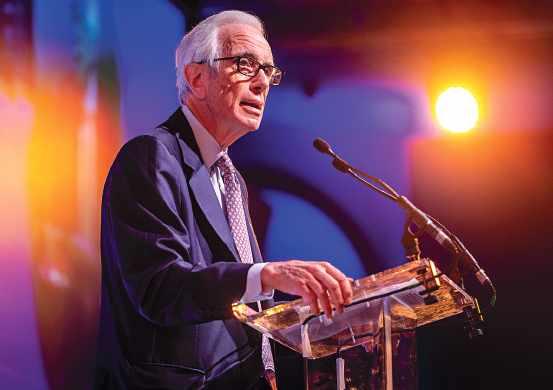
in the shop. It was experiences like that which helped me overcome any shyness I might have had and learn how to talk to people.”
Sinclair has since given his children, Emma and James – successful entrepreneurs in their own right – the same advice.
Sinclair says he faced discrimination as a young Jewish man trying to break into the professional world. “In those days, it was tough to find a job if you didn’t go to a public school and were Jewish. I struggled to get my foot in the door,” he recalls. However, following his father’s advice to walk into surveying firms and ask them directly, he landed his first property job age 17 with Goddard and Smith.
By the age of 26, Sinclair had struck out on his own, founding Neil Sinclair & Co, which weeks later became Sinclair Goldsmith when Peter Goldsmith joined him.
The firm experienced incredible growth but was not immune to the turbulent economic climate of the 1970s, including the commercial property crash. “I’ve been through several crashes,” Sinclair reflects, “but each time I’ve learned and come out stronger.”
By the early 1980s, Sinclair expanded his business internationally, opening an o ce in New York and quickly finding success.
In 1987, he helped to lead the firm through its flotation on the London Stock Exchange, becoming the third commercial surveying and agency firm to go public. “In fact, after we went public, Savills came to me for advice on how to handle the process.”
Despite weathering further storms such as the Black Monday crash in 1987 and the early 90s’ recession, Sinclair’s firm continued to grow, eventually merging in early 1993 with Sir John Ritblat’s firm, Conrad Ritblat, resulting in the formation of Conrad Ritblat Sinclair Goldsmith (CRSG).
The merger enabled CRSG to expand its operations and diversify its portfolio. Sinclair
left in late 1994, seeking to recapture the entrepreneurial spirit he felt was missing. “It was a bit too big for me. I wanted to get back to my roots, so I started my own company again.”
In 2005, Sinclair teamed up with his daughter Emma to launch Mission Capital, a property and car parking company that was floated on the stock market, with Emma becoming the youngest CEO of a publicly-listed company. After exiting that business, Sinclair again found new opportunities, partnering with Stanley Davis and Andrew Perlo in 2010 to form Palace Capital, a company that focused on properties outside London and built to a market capitalisation of £160 million.
But even with such remarkable success, Sinclair wasn’t done yet and when he left Palace Capital following a disagreement on strategy after posting record results, he, Davis and Perlo teamed up to take control of More Acquisitions (now Pristine Capital). “We said to ourselves, everything is terrible; the government, the economy, the stock market, so this is the time to try and find another little company.”
Sinclair’s entrepreneurial drive has extended beyond his own ventures. In 1991, he and Ronnie Nathan co-founded the PROPS, awards ceremony akin to the Oscars for the property industry, which has raised more than £12 million for Variety and helped fund over 2,000 wheelchairs for disabled children.
Sinclair’s wife Pamela has been involved in Variety since 1975 and in 2016 was elected Chief Barker, the charity’s highest position. The couple were recently honoured by Variety International with the Lifetime Service Award, given to them both at the PROPS last month in the presence of over 900 people.
When asked about his work-life balance, Sinclair is candid. “There was a time when I wasn’t there as much as I would have liked. But when you’re building a business, sacrifices are necessary,” he says.


Now, as he continues his ventures, he still enjoys his personal life, playing golf regularly at Dyrham Park. He and his wife live in St John’s Wood and are members of the Central Synagogue.
His advice for today’s aspiring property professionals? “Have self-belief. If you think you can do something, just do it. Don’t be afraid to take risks.”
• pristinecapitalplc.com
Do you know any promising property stars or those already making an impact? We want to hear about the industry’s rising stars, trailblazers and gamechangers for the Jewish News Property Business List 40 Under 40. For more details and link to nominate, go to: www.jewishnews.co.uk/nominate-nowjewish-news-40-under-40-property-list Or email: candicekrieger@googlemail.com
Closing Date: Monday 14 July



Suits from £79.50
Overcoats from £79.50
SUITS ALL HALF PRICE OR LESS
Trouser Bargains £25
SPORTS JACKETS AND BLAZERS ALL HALF PRICE
TROUSERS £20 ANY 2 PAIRS £30 UP TO 48 INCH WAIST
RAINCOATS FROM £39.50
POLO SHIRST £15 EACH, ANY 2 FOR £20
CASUAL JACKETS £29.50
Open everyday & Sundays til 5:00pm
Raincoats from £49.50 We accept Large Sizes a speciality


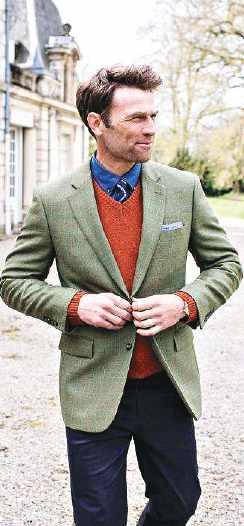

















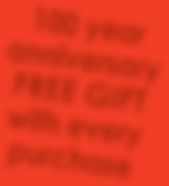






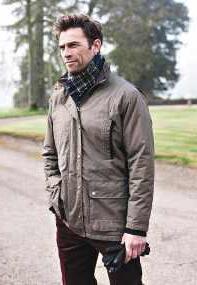







In our thought-provoking series, rabbis, rebbetzins and educators relate the week’s parsha to
the way we live today
BY RABBI ELCHONON FELDMAN
RABBI
OF
BUSHEY UNITED SYNAGOGUE AND CHAIRMAN OF THE RABBINICAL COUNCIL OF THE UNITED SYNAGOGUE
This past week we were deeply moved to welcome Iris Haim to Bushey. Her son, Yotam, was mistakenly killed by IDF soldiers while escaping from Hamas captivity. Her presence, her words and her message were nothing short of extraordinary.
Iris did not speak with anger or bitterness. She conveyed hope, courage and profound love - not only for her son, but for the very soldiers whose actions tragically led to his death.
She understood the weight they were carrying and, instead of adding to it, she lifted it. In a moving video
message sent shortly after Yotam’s death, she told the soldiers: “I love you. I do not blame you. Do not let this break you. Keep going. Be strong.” Her voice was one of healing and resilience – a declaration that Am Yisrael, the Jewish nation, will not be broken by terror, nor paralysed by fear.
Her words echo as we read this week’s sedra, Shelach Lecha, which recounts the tragic episode of the meraglim, the spies. Twelve leaders, one representing each tribe, are sent to scout the land of Israel. They return with a fearful and faithless report. “We cannot go up,” they say. “The people are stronger than us.”
Rabbi Sacks z”l, quoting the Lubavitcher Rebbe, asks how such pious individuals could falter so dramatically. His answer is striking:

the spies were not lacking faith in God’s power, but in their own. They feared that on entering the land, responsibility for the nation’s future would rest in their hands. That fear- of failure, of consequence, of freedom itself - overwhelmed them.
Only Yehoshua and Calev spoke di erently. They reminded the people that the land was good, tov meod, and that with courage and faith, they could succeed. But their voices were drowned out by fear.
Today, we too face overwhelming challenges: a prolonged and painful war, Iranian rockets killing Israeli civilians, and hostages still in captivity. The grief and su ering on all sides is devastating and tragic. Yet even amidst this darkness, voices like Iris’s rise up: voices of strength, unity and purpose.

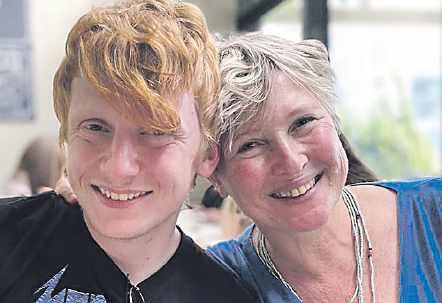
The lesson of the sedra is not that fear is unnatural, but that it is human. The question is whether we let it dictate our actions or whether we choose to raise voices that drown it out.
Iris Haim’s voice, and countless others across Israel and the diaspora, offer a model of what it means to rise above fear and reaf-
firm what we hold most dear. Let us echo those voices and remind one another - soldiers, civilians, Jews and allies - that the land and its people are tov meod - truly good and truly worth standing for. May God grant us the strength to continue supporting one another with courage, compassion and unwavering commitment.



Direct liaison with GPs, employers, universities, schools, and the DWP to support your needs.
Access to effective, tailored treatment plans to help you manage and recover. In-house







BY BY RABBI NAOMI GOLDMAN KOL CHAI – HATCH END REFORM JEWISH COMMUNITY
Dual heritage at our community’s heart
Fostering an inclusive Jewish community is an important part of our vision for Progressive Judaism, the new movement that was voted into existence last month. We want to welcome in everyone, no matter where they are on their Jewish journey.
Key to this is the embrace of dual heritage –or what used to be called mixed faith – couples and families. We know that family life comes in many different shapes and sizes now, and in the same way, so does Jewish life. Whether a family has one or two Jewish parents, they can be part of a Progressive Judaism, where they are all fully included in synagogue life.
I have seen this first hand in my own congregation of Kol Chai – Hatch End Reform Jewish Community. Today, almost 40 percent of our families with school age children have one non-Jewish parent. We offer synagogue
membership to the entire family, which covers non-Jewish parents and includes their eventual burial.
What this looks like in practice is that our bnei mitzvah and other simchas and lifecycle ceremonies are often multicultural affairs, with non-Jewish family members participating in different ways. Often however, it doesn’t look any different. The children of our dualheritage families are just Jewish children – by welcoming them in, we are expanding the Jewish community and making it stronger, more joyful and more diverse. We believe that non-Jewish partners marry into Judaism, rather than Jews marrying out.
A stimulating series where our progressive rabbis consider Judaism in the face of 21st-century issues

This change in Progressive communities began back in the 1990s, but dualheritage families in Judaism are nothing new.
The Biblical approach to intermarriage is more nuanced than you might think. In the Torah, Moses marries Tzipporah, the daughter of the priest of Midian. Esther
marries the non-Jewish King Ahasuerus, thereby becoming Queen and saving the Jewish people.
It is true that Ezra, keen to purify the people on their return from exile in Babylon, discourages intermarriage, but the Book of
Ruth, which we read on Shavuot, comes right back at him with a story of a Moabite woman, then widow, who has married an Israelite man, and becomes the ancestor of King David and so the Messiah.
The rabbis of the Talmud suggested she convert, but there is no textual evidence of her doing so; the Book of Ruth is a tribute to all those who marry in and who thereby make our community better, stronger and richer.
One question I have never been asked is whether someone should marry the person they love if they’re not Jewish and don’t want to convert. Pushing people away achieves exactly that: a Jewish family who don’t feel welcome.
Our Jewish community is changing. We need to face the challenge and make sure that every kind of Jewish family is included. That’s the Judaism that I believe in; one in which our doors are open and dual heritage families are at the heart of our communities.

ANTIQUES
Antique – Reproduction – Retro Furniture (any condition)
Epstein, Archie Shine, Hille, G Plan, etc.
Dining Suites, Lounges Suites, Bookcases, Desks, Cabinets, Mirrors, Lights, etc.
House clearances
Single items to complete homes
MARYLEBONE ANTIQUES - 8 CHURCH STREET NW8 8ED 07866 614 744 (ANYTIME) 0207 723 7415 (SHOP)
closed Sunday & Monday
STUART SHUSTER - e-mail - info@maryleboneantiques.co.uk
MAKE SURE YOU CONTACT US BEFORE SELLING



Friendly Family Company established for 30 years We clear houses, flats, sheds, garages etc. No job too big or too small!
Rubbish cleared as part of a full clearance. We have a waste licence. We buy items including furniture bric a brac.
For a free quote please phone Dave on 07913405315 any time.


Confidential Bereavement Counselling for adults and children individually. Support Groups available. We offer in person, online and telephone counselling. Contact Jewish Bereavement Counselling Service in confidence. 0208 951 3881 enquiries@jbcs.org.uk | www.jbcs.org.uk
Call our Legacy Team on 020 8922 2840
or














In the wake of Israel’s Operation Rising Lion, a massive wave of retaliation is underway. United Hatzalah’s 8,000 volunteer medics are responding to direct hits on Israel.
YOUR DONATION WILL HELP SAVE LIVES
